Humanities & Social Sciences
Single Mothers Increasing: Mak Researchers Call for Friendly Policies on Parenting to Improve Children Welfare
Published
1 year agoon
By
Jane Anyango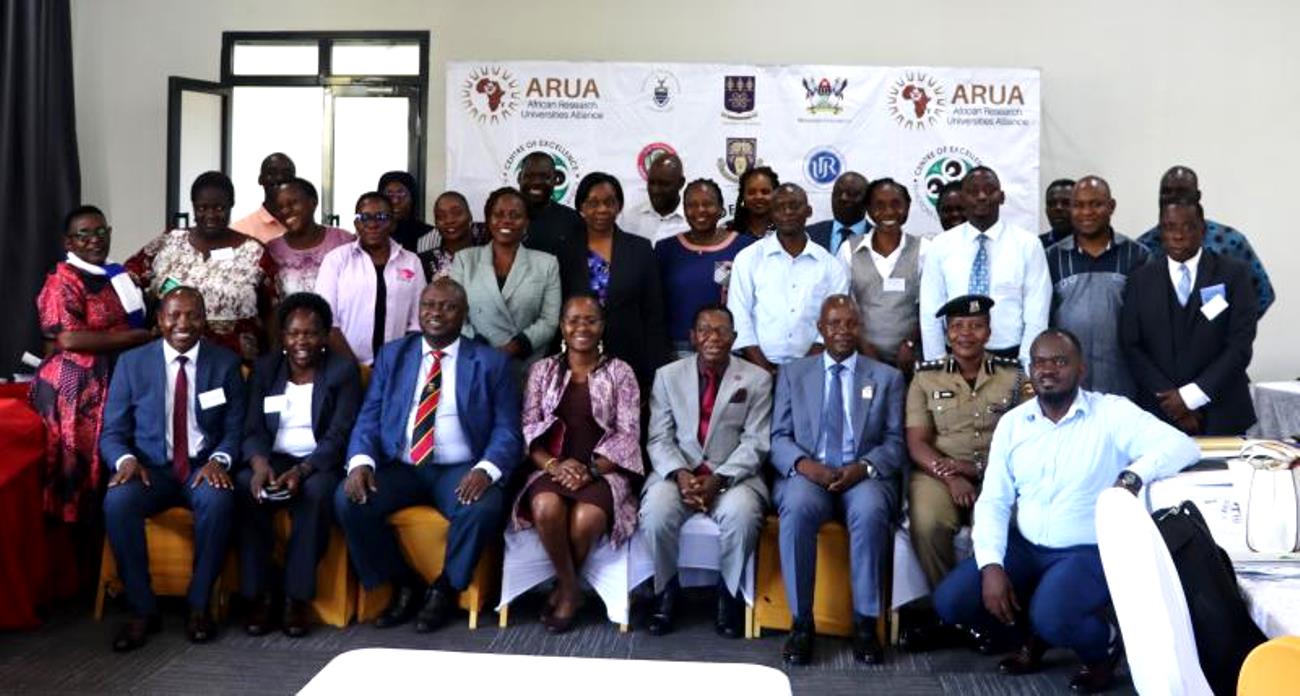
Researchers from Makerere University’s African Research Universities Alliance Centre of Excellence in Notions of Identity in Africa (ARUA CoE) have found that single motherhood is a phenomenon that has been documented since the colonial era but, it is increasing in Uganda. Research indicates that neoliberal and capitalist ideals, indigenous and western cultures have exacerbated the problem. Researchers are now calling on government to enact friendly policies on parenting to improve children welfare in Uganda. Makerere dons also want government to address issues of unpaid care economy. On the other hand, stakeholders have asked the university to introduce a graduate program on parenting to address capacity gaps in dealing with issues relating to parenting and children’s’ welfare.
The call was made during the policy dialogue organized by the ARUA CoE aimed at providing a platform for Early and Senior Careers researchers to share their research findings with policy makers and stakeholders and be able to obtain feedback. The workshop was also to create synergies between the different implementing institutions driving advocacy and policy change at national and local levels as well as identifying key policy and regulatory frameworks for improved parenting.
The Centre Director, Assoc. Prof. Sarah Ssali said, the centre was established to deepen scholarship on identities in Africa, how they change and how the changes are impacting on life and development in Africa. As first phase Prof. Ssali said, Uganda, Kenya, South Africa, Nigeria and Rwanda got a capacity building grant financed by the United Kingdom Research and Innovations (UKRI) and focused on how parenting identity is changing.
“And in particular, we wanted to find out how is fatherhood and motherhood changing, why is it changing and how these changes impact on children’s welfare. So the whole aspect of capacity building grant was to strengthen the capacity to research and engage policy makers in studying parenting, fatherhood and motherhood and children’s wellbeing on the African continent”, The Director said
“We have studied for three years, involved 21 early career researchers, given out 18 small grants, engaged 9 senior scholars and today, we are having a segment of disseminating the Uganda research findings to the policy makers.” Prof. Ssali added.
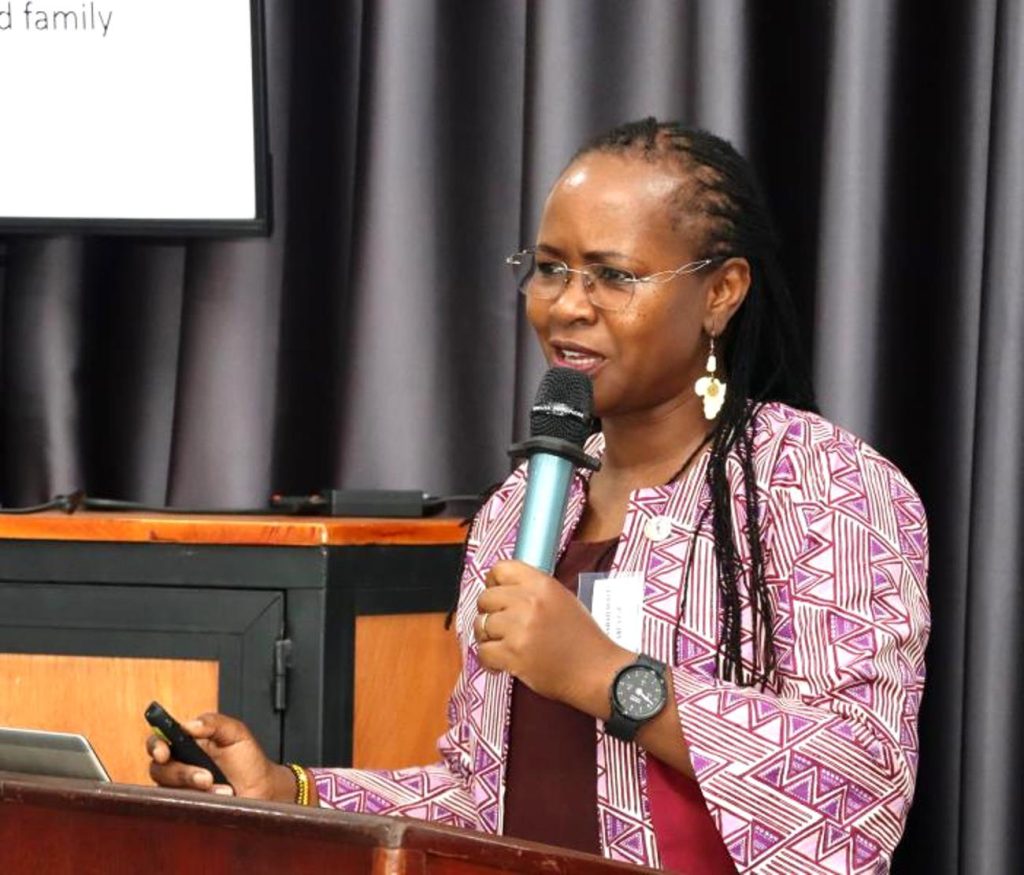
The Senior and Early Career researchers presented their research findings to obtain feedback from the policy makers and stakeholders in dialogue that was held at Fairway Hotel on 25th March 2024. The policy dialogue brought together participants from academia, government ministries, agencies, private sector and civil society organizations. These included, Ministry of Agriculture, Ministry of Gender, the media, Uganda Police, Uganda Prisons, Uganda Women Parliamentary Association, Makerere and Kyambogo University, Young Child Uganda, Uganda National Association of the deaf and Mothers Heart Uganda and Kampala City Capital Authority among others.
The function was officially opened by the Principal College of Humanities and Social Sciences represented by the Deputy Assoc. Prof. Eric Awich Ochen and closed by the Deputy Vice Chancellor in charge of Academic Affairs represented by the Academic Registrar Prof. Buyinza Mukadasi. The Director, Directorate of Graduate Research and Training Prof. Edward Bbaale also graced the occasion.
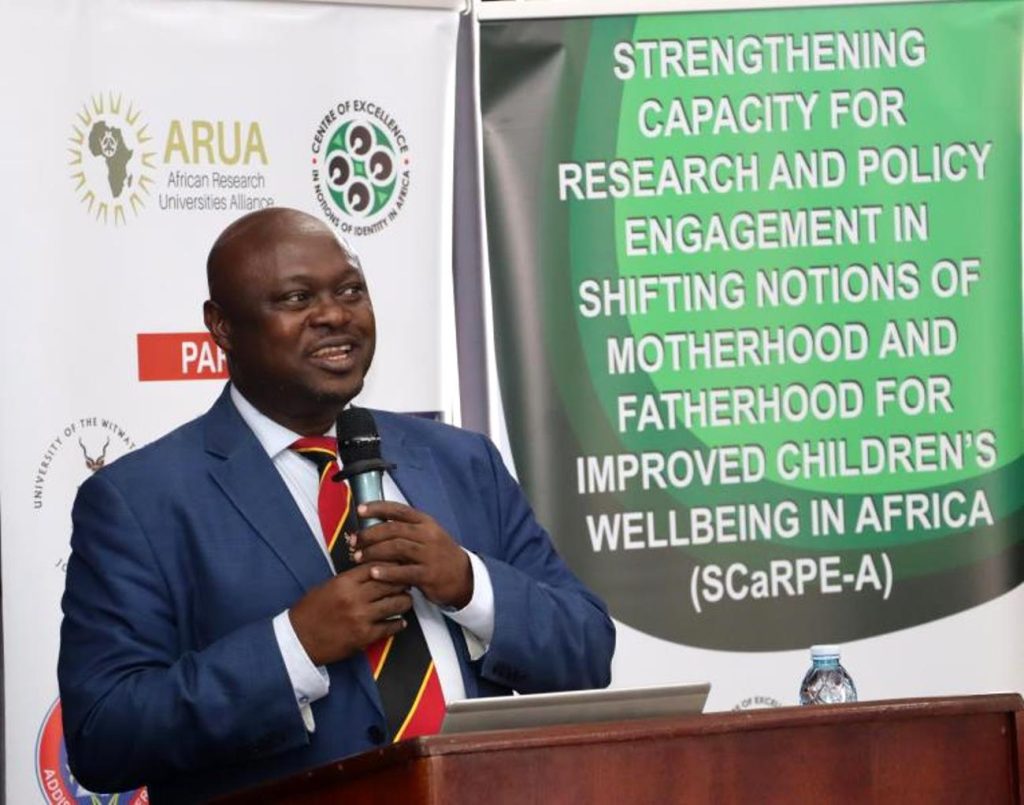
The workshop was characterized by speeches, presentation of research findings and panel discussions. Prof. Sarah Ssali presented on the systematic review on the changing notion of motherhood and fatherhood in Uganda; Dr. Zaid Sekito focused on the historicisation of the concept of motherhood in Buganda from 1840 – 2021; Mr. Howard Tugume analysed ways in which pigeon pea production shapes parenthood among climate smart agricultural farmers of Lira and Alebtong while Ms. Proscovia Nalwadda assessed the changing notion of motherhood and fatherhood amidst COVID 19 family-based challenges in Mukono district.
“From all the four research plus what we did in foregrounding of the systematic literature review by senior researchers shows that the family structure has been constantly changing initially impacted by colonialism but later impacted on by other things today such as CoVID 19, neoliberalism, job losses, HIV and wars and all these are changing how traditionally we conceptualized fathers and mothers”.
For example the role of providing is under threat, fathers move on, and abandon, and single mothers are increasing in numbers and they have to continue providing for these children and sometimes we see pressure manifesting as street children but also consequently creates a scenario where children who never saw fathers in homes choosing singlehood, children who never saw fathers in their homes not knowing what to do when they impregnate girls, and just keep on the run”, Centre Director and Senior Researcher who is also Dean School of Women and Gender Studies Sarah Ssali explained.
Ssali said, the meeting was to share with policy makers, activists, civil society organizations and the press what researchers have discovered and implore them to consider these changes and findings in the work they do so as to have more responsive policies that put family and children in the center and support parents to do their work .
“The key point here is that family structures are changing. What sense do we make of it and how do we work and support what remains? The way forward is to have policies that support families because families will always continue to be with us but we need family friendly policies”. She stressed.
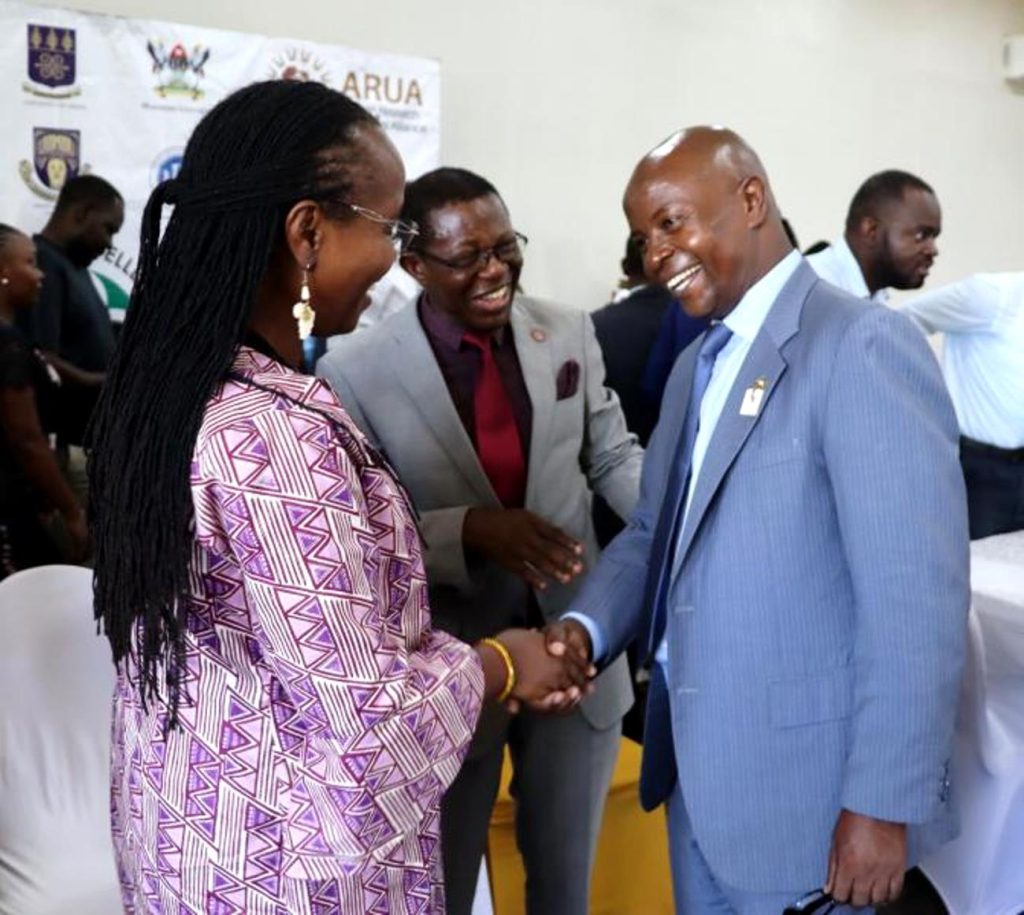
Single mothers on the rise
In his presentation, Dr. Zaid Sekito said, the increase in single mothers is a phenomenon that has been documented for long since the colonial era. In traditional family settings in Africa, Sekito said, single parents were rare or unheard of because families lived in a community and extended families. A semblance of single parenting was seen with colonization and movements and that time, they were talking about de facto single parents because although the fathers were there, they were never present. They would move to plantation farms and mines and would be away for even three years and the mothers who looked at the families became de facto.
With time, especially in Uganda, Dr. Sekito narrated, many wars of the 1970s took away most men and many women started looking after children as single mothers because fathers had died. Then, the phenomenon of single mothers reproduced itself, not just created by war but also created by economic conditions when fathers have to travel far to work but also some when they realize that they have fathered a child and they are not ready, they get on to the run.
“So single motherhood is increasing because, while fathers can walk away, mothers are stuck with the children. So economic changes, wars have been some of the primary drivers.
But also now, we are beginning to see a phenomenon where also mothers walk away. Children are being abandoned at the garbage sites and streets and sometimes mothers go to work and live children with house helps or grandparents. Sometimes both parents go away or die and children have to look after themselves”. Sekito observed.
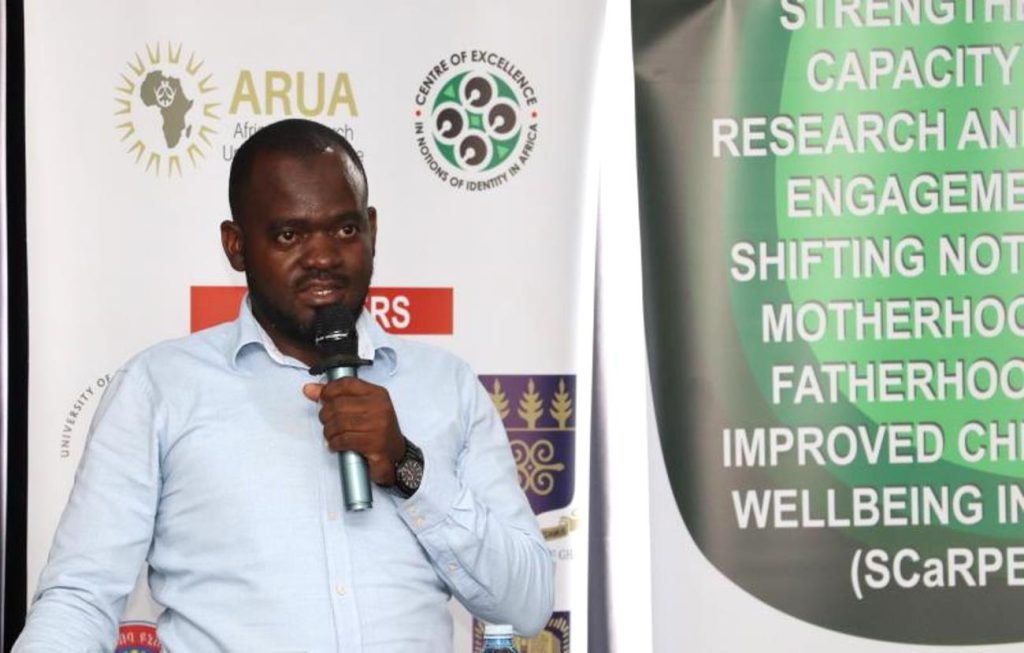
Sekito also reported that many of the Ugandan families that are not earning much are under stress and as they try to cope with long distance work, the children are left behind.
“It is important that concerned authorities, probation and welfare office, ministry of Gender, Uganda Government come in to support families so that they are held together. They can also explore other forms of families such as adoptive parenting, foster parenting but whether people foster or adopt, or whether children are in extended families, families need support. Most families are not rich and are coping with a lot of pressure as we transition from the rural peasant agrarian families into the modern capitalistic families”. Dr. Sekito recommended.
Dr. Sekito’s research examined the meaning and implication behind the concept of motherhood from 1840 – 2021, when Buganda became into contact with external forces and also covering the precolonial space. He said, the concept motherhood, in the 1840s conceived mothers as being caretakers and everything in the social aspect and that time, even fathers had great responsibility ranging from moral upbringing of children and bread winners.
Men, according to Dr. Sekito have changed and ceased being men, when they got exposed to western capitalist forces, when the labour market became monetized and that is when fathers became more inclined to bread winning activities and the rest of the roles relegated to the mothers. Children henceforth, became inclined to their mothers so much that the attachment had to continue and as the neoliberal era set in, most fathers focused on the bread winning role but even some lost and abandoned the roles altogether.
“As we speak now, the number of single mothers is on the increase. According to the UBOS 2024 report, the number has increased from 20 -30%. This is for women having children but are single mothers. This statistics have a lot of implications on the role that culture plays”. Sekito said.
Cultures according to Sekito have been responsible for the increasing number of single motherhood as they promote habits such as overdrinking.
“A parent who goes out to drink a lot has nothing to do with valuing what parenting is, so that moral fabric is always lost. We are seeing cultures permitting polygamy without due consideration of the man’s ability to take care of the wives and children” Sekito stated.
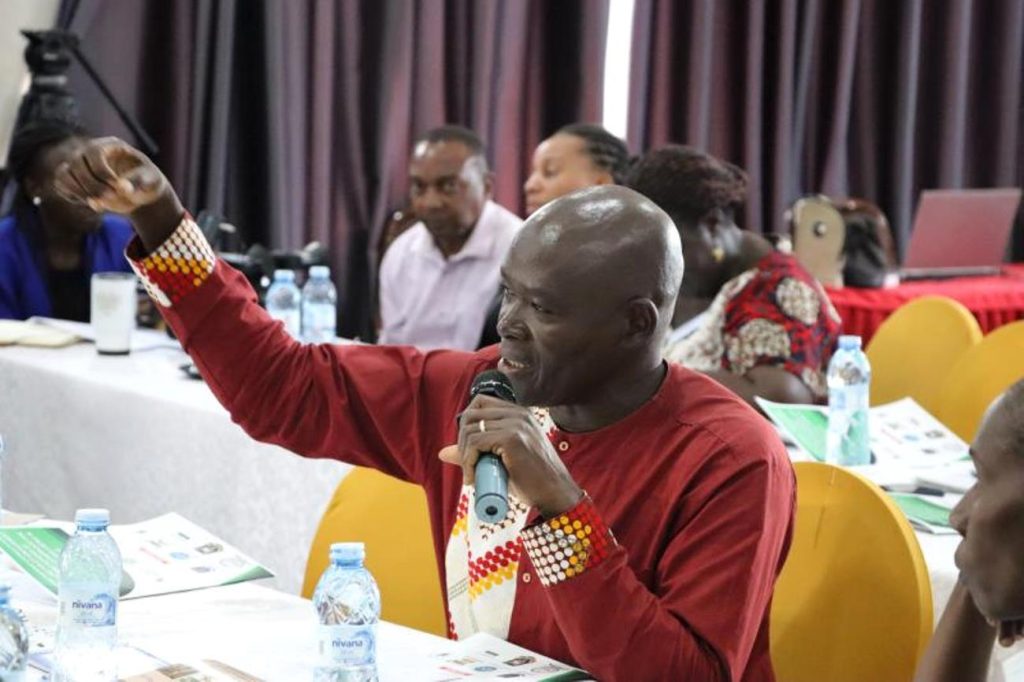
The other issue according to Dr. Sekito is the lack of moral guidance and cognitive behavioral direction where men abandon their families because their women have produced girls or boys only or a child with disability. In this case, as a man moves out, a woman is stuck to single-handedly take care of children.
Consequently Sekito said, women have lost trust in men and decided to concentrate on bringing up their children and are labelled all sorts of names. Dr. Sekito reported that Since 1980s there has been that aspect of marginalization and social exclusion of women by men and sometimes taking advantage of those with disabilities.
“Because many men are lacking guidance which is embed within culture, a Muganda man will describe a woman who give birth to a lame child as woman with bad omen which is rooted in culture and socially constructed. This is carried on by boys who marry and this culture does not defend the women using prevailing circumstances or biological science.
There are instances where men take advantage of the physically impaired girls and women, use them and abandon them. There are disabled women having four children but you can hardly point out their fathers, but, high class citizens are prime suspected fathers” said Sekito
Sekito also associated the rising number of single mothers to the western ideals. The don cited a common practice and space of having sex for pleasure, the old and rich men having women but not wives and single motherhood by choice.
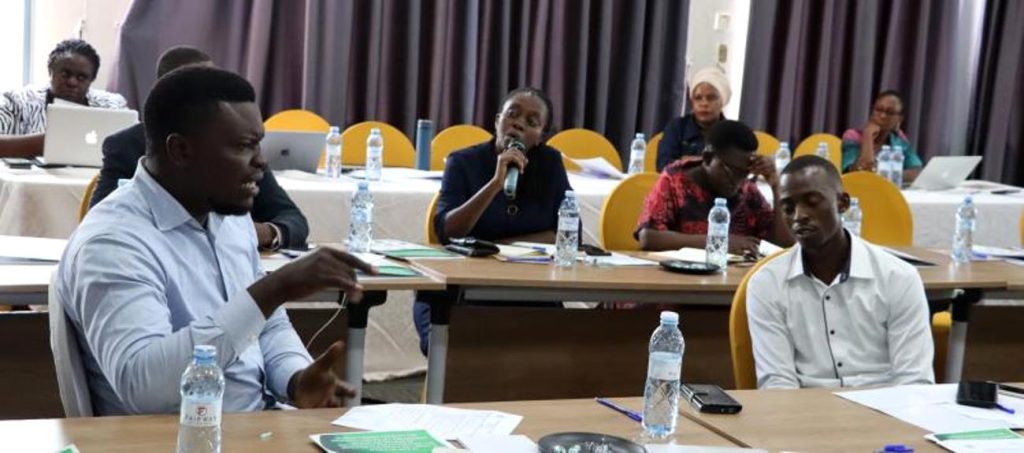
The study also associated the rising number of single mothers to the rising education, political, social and economic statuses. A significant number of single mothers with low educational levels reported that their husbands had abandoned then in favor of highly educated partners to march their social, political and economic status. These women according to Dr. Sekito begun humbly with their men when they had nothing, but when they advanced, they dropped them on grounds that they are a shame in public.
Dr. Sekito proposed a form of cultural re-orientation to challenge both indigenous and western cultures to improve parenting; formulating policies that support cognitive behavioral therapies where people can be spoken to, and, revising some of the colonial legislation like one on alcohol consumption.
Stakeholders ask Makerere to introduce a Graduate program on parenting
During the panel discussion, stakeholders decried the capacity gaps in dealing with issues of parenting in the different public, private and civil society organization asking Makerere University to leverage on the partnership and research to build human capacity to address the gaps.
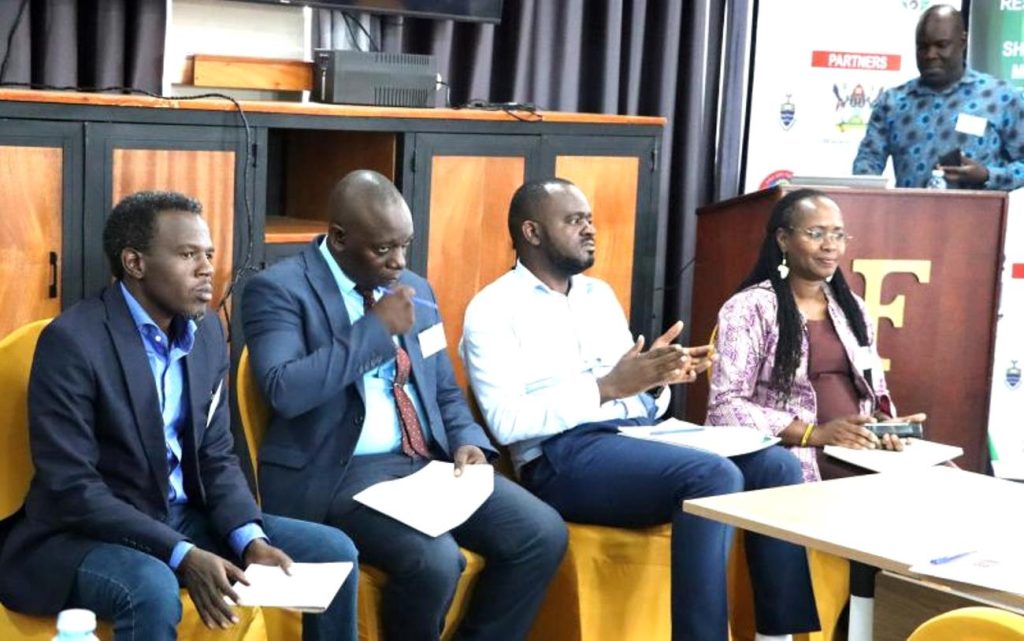
The Director, Directorate of Graduate Research and Training at Makerere University Prof. Edward Bbaale welcomed the move and the possibility to develop an interdisciplinary graduate program in the School of Women and Gender Studies to address the capacity gaps.
Prof. Bbaale expressed gratitude to ARUA center for the work well done saying, its rightly within the strategic direction and priorities of the university. As a Directorate, Bbaale said, it gives him a lot of hope that the university has units building the research led aspect .
Bbaale said, one way of building a research mantra is through building partnerships and collaborations as well as internationalization, and, ARUA Center comes in handy to advance the agenda adding that collaborations that have been built in this endeavor were heartwarming.
“I enjoyed the panel discussion seeing the academia, the researchers and the policy makers come in with different perspectives; and there has been a point of convergence on a number of issues and one of it, is to deepen research on un-answered questions with evidence” said Bbaale
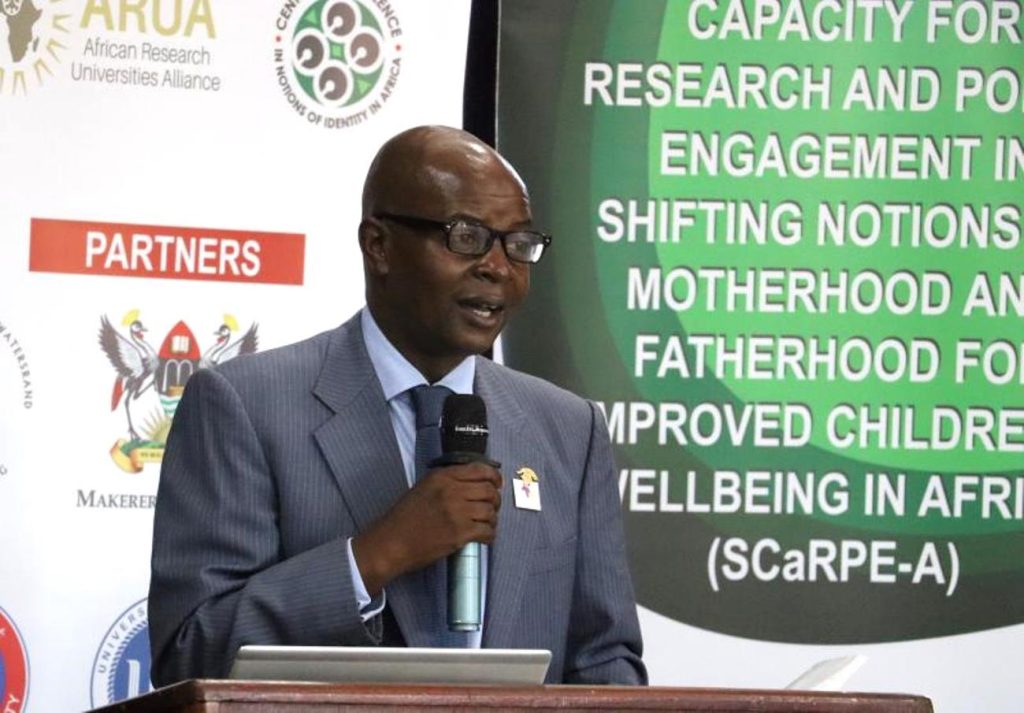
Addressing issues of unpaid care economy can have positive implications
On a personal note, Prof. Bbaale expressed the need to reignite the debate on unpaid care economy. Unpaid economy, he said, refers to the work done within the household, community that is not recognized or renumerated such as child care, elder care and domestic chores. This work is often performed by family members particularly women without financial compensation.
From the gender perspective Bbaale said, there is much more that academia and policy makers and stakeholders can do to recognize and compensate caring hands that make what people are.
“In terms of parenting, unpaid economy can significantly impact parents particularly mothers as they bear the primary care responsibility and domestic duties. This can lead to dire consequences such as limited career opportunities and increased stress affecting the overall wellbeing and ability to participate fully in the work force”, said Bbaale
From the economic stand point , the unpaid care economy according to the professor has both direct and indirect costs on the Gross National Product. Directly, he said, it contributes to the economy by enabling other members to participate in the paid work or other productive work.
But indirectly, Bbaale said, the lack of recognition and support for unpaid care work leads to economic loss by perpetrating economic inequalities, limiting women participation in the labor force and constraining their overall productivity.
Basing on what had taken place in the discourse, Bbaale expressed optimism of a bright future in coming up with an interdisciplinary program and research that can address many of the issues raised.
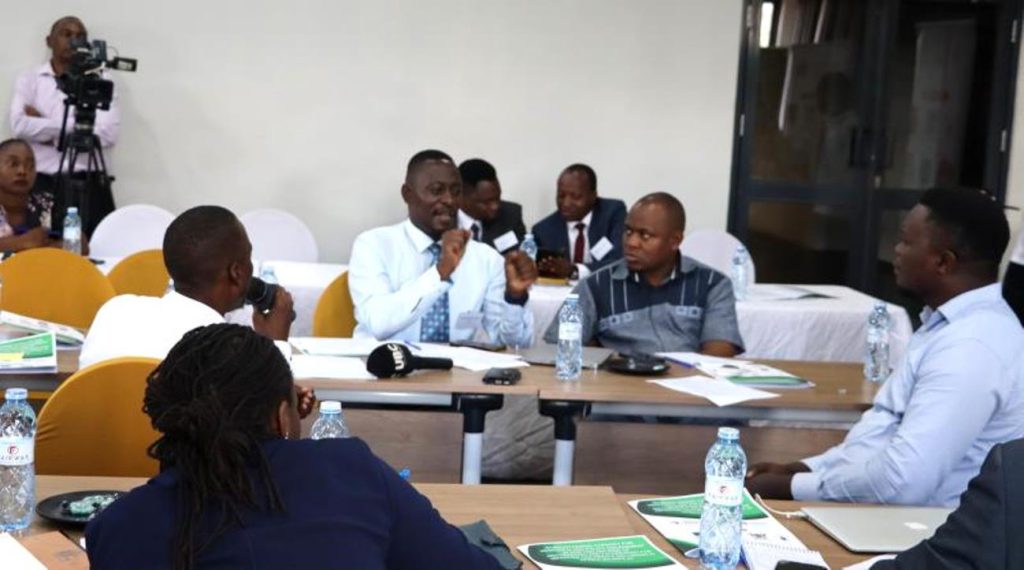
ARUA taking the university to the community- Prof. Buyinza Mukadasi
While closing the workshop, the Academic Registrar Makerere University Prof. Makadasi Buyinza commended the centre leadership and team for building strategic partnerships and taking the university to the communities.
“I feel too good to see that Makerere has come of age, we had the police officers, listened to submissions in a low tone to influence policy. I listened to the Principal Agricultural Officer, and it means that this has been a historic event at least in our lifetime as a university”, Said Buyinza.
He appreciated Prof Sarah Ssali for the initiative to write the grant winning proposal that brought resources helping to engage and meet partners in the business and community service.
He commended the Centre for strengthening capacity on active research and policy engagement in notions of identity saying, the stakeholders have been able to see how the notion and narrative of fatherhood and motherhood is changing and the need to strategize how to improve children’s’ wellbeing through research.
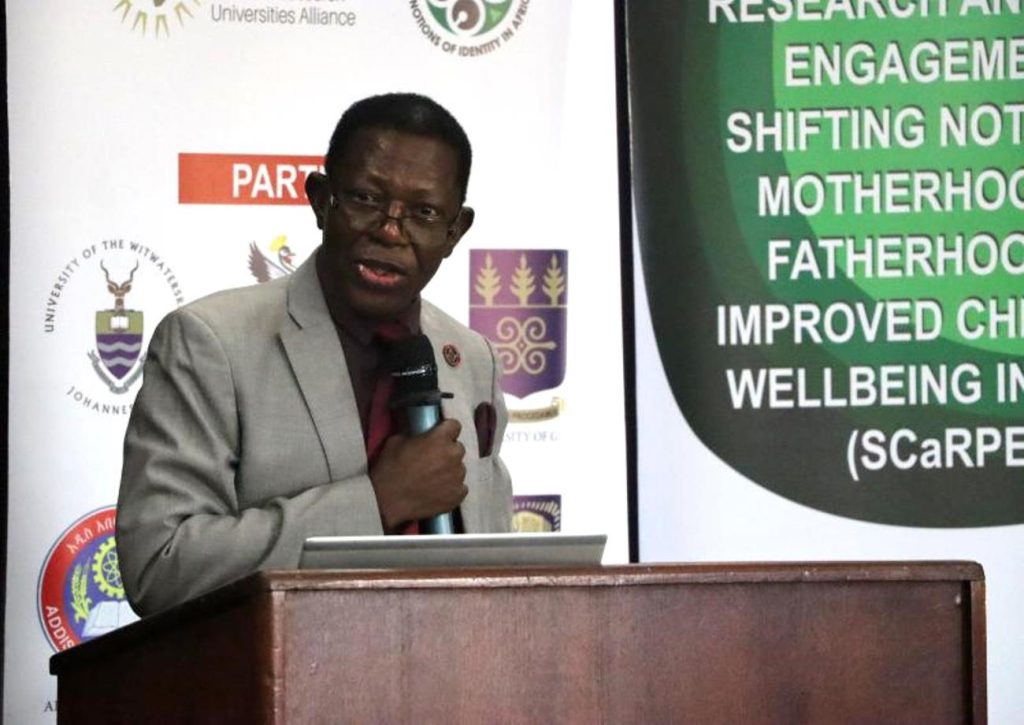
Buyinza implored the center to deepen the partnership and build the forum of exchange so that periodically, they come together for updates on emerging issues on parenting. He said, a forum like this, helps coordinate and get feedback on a number of policies.
“There was a discussion about curricular. Time is now. Makerere is looking for innovative ways of transforming society. If we can do that through curricular please present to us, we shall support you in Senate”, Buyinza pledged to support implementation of a new program in parenting.
On behalf of the university, Prof. Byinza expressed commitment to conduct research and have the evidence-based policy.
Participants speak out
A representative from the Ministry of Agriculture, Animal Industry and Fisheries Eunice Alloo expressed the need to ensure that interventions go beyond gender issues to address issues of parenting, integrate issues of motherhood and fatherhood to improve the welfare of children.
“In my department and division of home economics that deals with family life, we need to go further and introduce issues of motherhood and fatherhood in our home economics training and welfare” Alloo said.
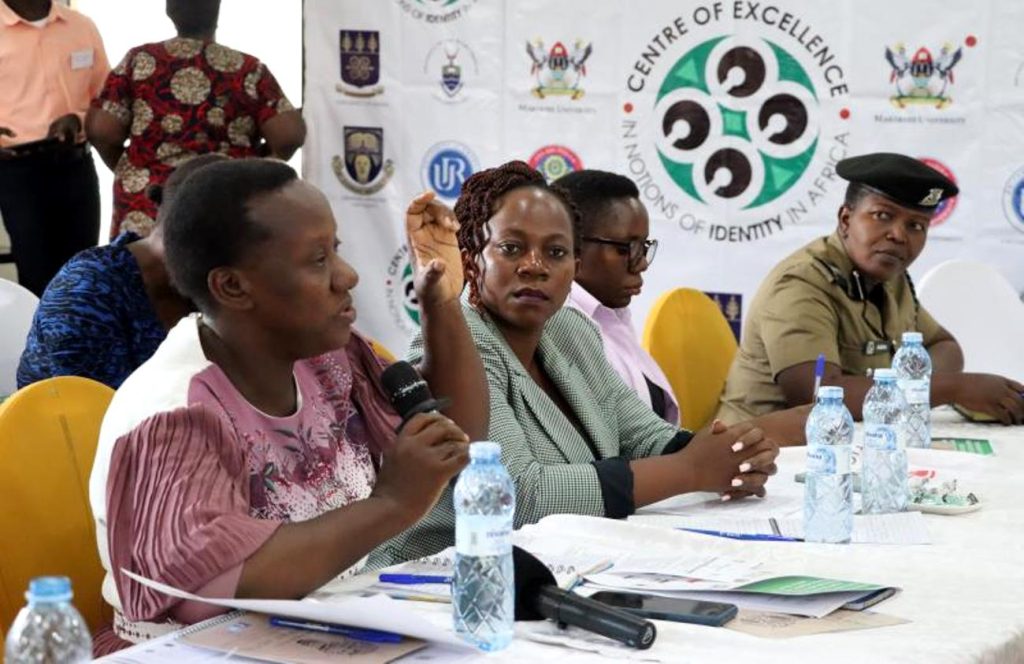
Besides handling people with disabilities, Ester Adeke from the Child and Family Protection Unit in the Uganda Police Force appreciated researchers for unearthing issues on parenting saying, it creates a basis and work for Uganda police.
“The insight given brings forth the need for us to do more of the proactive positive parenting especially for mothers and fathers to provide safer solutions to manage the hate or love situations; to build self esteem in the mothers and fathers; and transfer to the child, then responsible parenting and accountability for each as a child and parent. Let us appreciate co-parenting not existing in marriage but core parenting is your mandate and role even when the marriage has failed to work”, Adeke said
The Principal Social Development Officer Ministry of Gender and Social Development Lucy Otto said, besides advocating for evidence policy making, there is need to work in partnership to agree on the research agenda.
“Let three core institutions namely Africhild, Makerere University Child development center and ARUA sit together and agree on the research agenda to fill identified gaps, equip parents with necessary information and support to step up parenting and reduce gender based violence”. Said Otto.
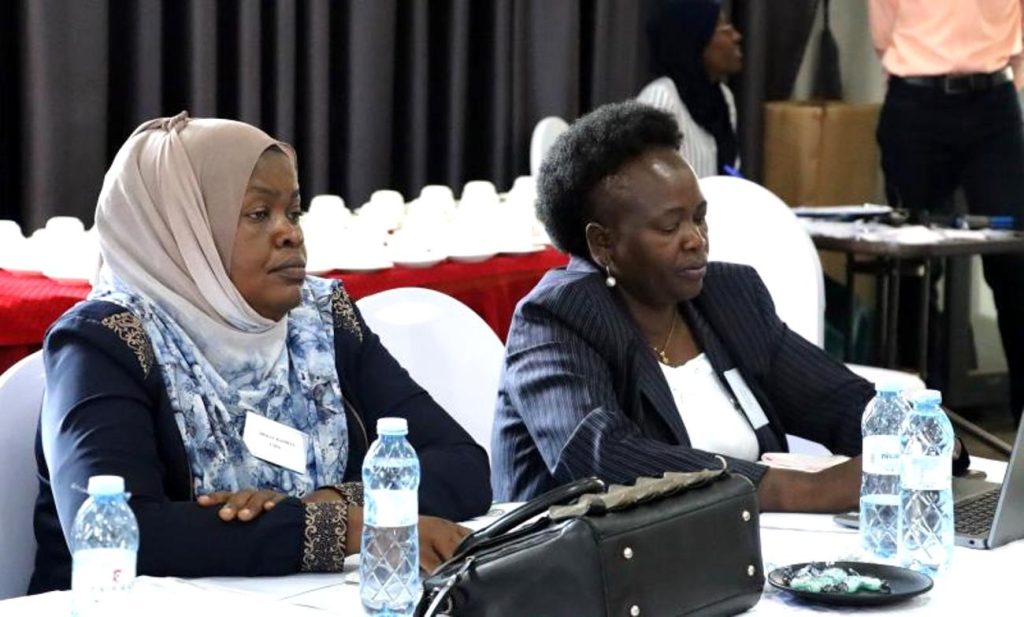
Appreciating the role of religious leaders in building families through marriage ceremonies and counselling, the representative from the Uganda Muslim Supreme Council asked Makerere to continue inviting religious leader in such dialogues.
She expressed the need for researchers and policy makers to streamline data from of all religious sects. She said, Islam teaching preaches care of children but there is need for mindset change program on polygamy, regulate and set the minimum standards for men to marry many wives.
“… the Muslim community may you please demand the Uganda Muslim Supreme Council to regulate polygamy because in my office these are common cases. Cases of child neglect and child abuse come due to polygamy. You can suggest that the minimum standard of a man getting another wife, is the status of the existing wife. Is she having the basics such as shelter, education and food so that people do not do it un-quranic way because it is an attack on the institution. It is alarming having irresponsible fathers just marrying and producing children for the community to suffer…” she implored the Moslem community.
You may like
-
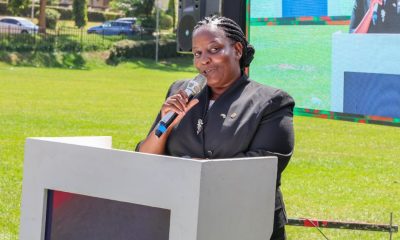

Emorimor Calls for Makerere to Upgrade Parenting Course
-
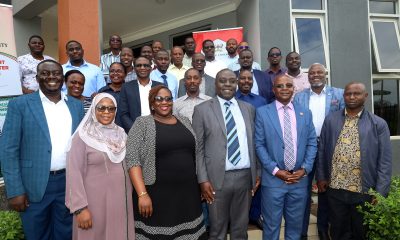

Uganda Deepens Economic Governance with Training on Regulatory Cost-Benefit Analysis
-


UVCF Makes Case for HEAC Programme
-


Mastercard Foundation Board pays its inaugural visit to Makerere University
-
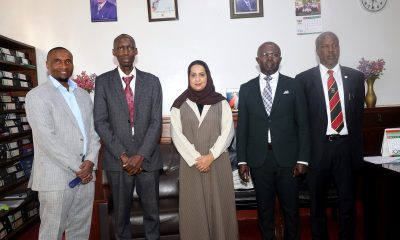

Mak CEES discusses partnership with King Salman Global Academy for the Arabic Language
-
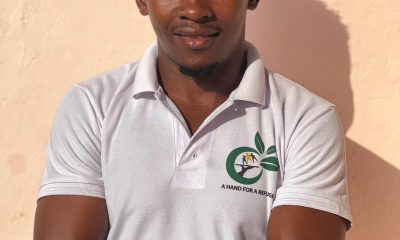

Meet Safali Libia, a Mastercard Foundation Scholar-alumnus who rebuilt his life as a refugee in Uganda
General
Special Exam Results -Diploma in Performing Arts 2025/26
Published
4 days agoon
June 28, 2025By
Mak Editor
The results for the 2025/2026 special entry examination for the Diploma in Performing Arts held on Saturday 17th May, 2025. Candidates who scored a final mark of 50% and above passed the Examination and have been recommended to the university’s Admissions Committee for consideration.
Health
MakSPH, DJC Launch Short Course on Health Communication
Published
2 weeks agoon
June 20, 2025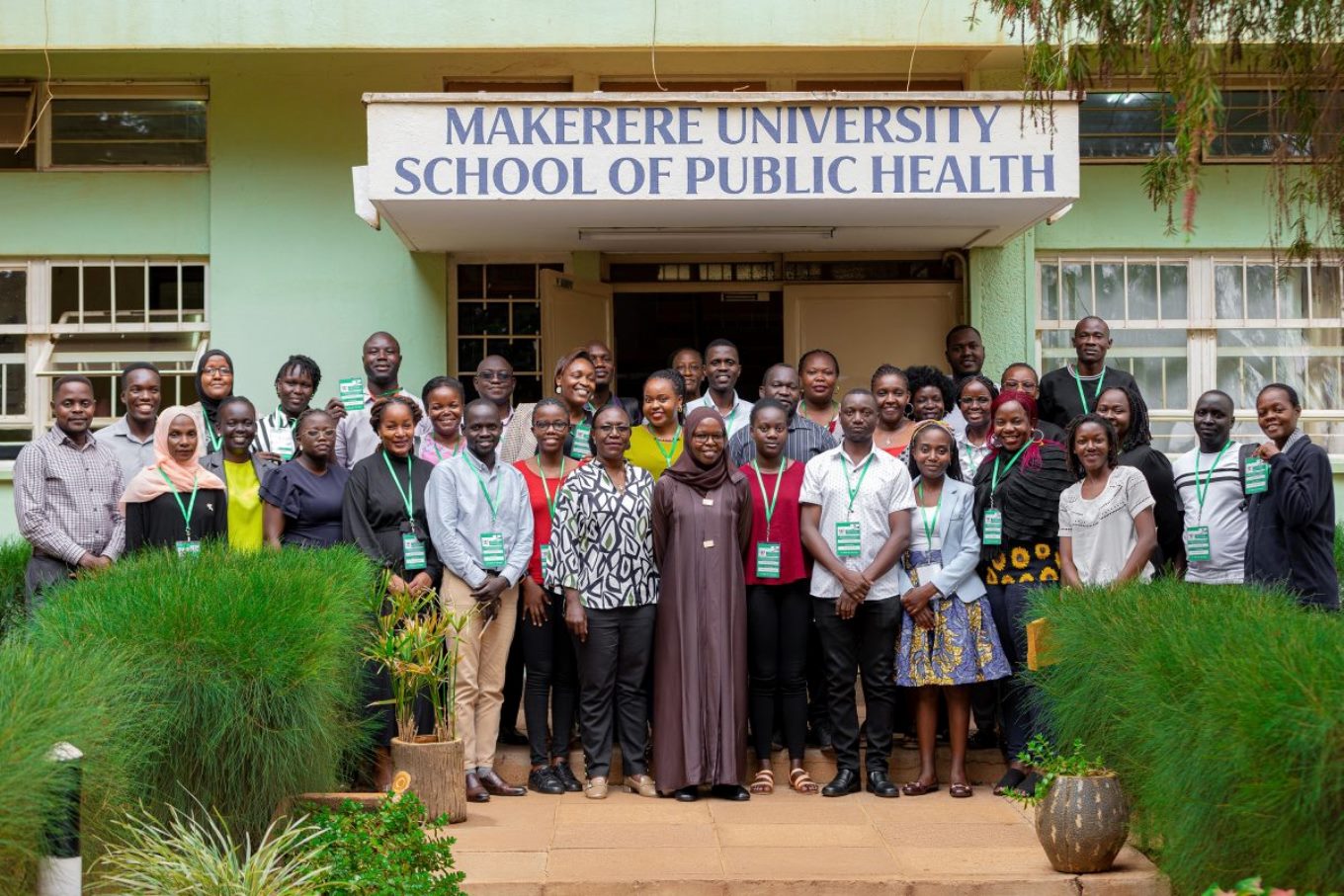
By Okeya John and Primrose Nabankema
The intensive one-month course, running for the first time from June 5 to July 24, 2025, is jointly offered by Makerere University School of Public Health (MakSPH)’s Department of Community Health and Behavioural Sciences (CHBS) and the Department of Journalism and Communication (DJC) at the School of Languages, Literature, and Communication (SLLC), co-designed in 2024 with support from the Rockefeller Foundation through Amref Health Africa.
It seeks to equip healthcare providers at the community level, public health and environmental health practitioners, communication specialists, health educators, community development officers, social scientists, and policy makers, among others, with strategic communication skills to improve public health messaging, strengthen community engagement, and support evidence-based interventions, ultimately empowering participants to effectively engage communities and improve population health outcomes across Uganda and the region.
Launching the course, the heads of the Department of Journalism and Communication and the Department of Community Health and Behavioural Sciences noted that participants who complete the short course will gain practical tools to influence behaviour change, build trust, and deliver timely, accurate, and relevant health information to the communities they serve. The first cohort attracted more than 60 applicants, with 36 reporting for the opening in-person session on June 5, 2025, at MakSPH in Mulago. Between now and July, participants will undergo a hands-on, multidisciplinary learning experience within the Certificate in Health Communication and Community Engagement program, which combines theory and practice.
Among the participants in the first cohort of the certificate course, designed as a pilot for the anticipated Master of Health Promotion and Communication to be jointly offered by the two departments at Makerere University, is Ms. Maureen Kisaakye, a medical laboratory technologist specialising in microbiology and antimicrobial resistance (AMR), and currently pursuing a Master’s in Immunology and Clinical Microbiology at Makerere. She is driven by a passion to help reverse the rising tide of AMR, a growing global health threat where drugs that once worked are no longer effective. Kisaakye is particularly concerned about common infections, like urinary tract infections, becoming increasingly resistant and harder to treat.
“I enrolled in this course because I’m an advocate against antimicrobial resistance, and it came at a time when I needed to deepen my knowledge on how to implement our projects more effectively and engage with communities. The experience has broadened my understanding of AMR and its impact on society, and strengthened my passion for community-driven health initiatives and advocacy,” Kisaakye said, explaining why she enrolled for the short course.
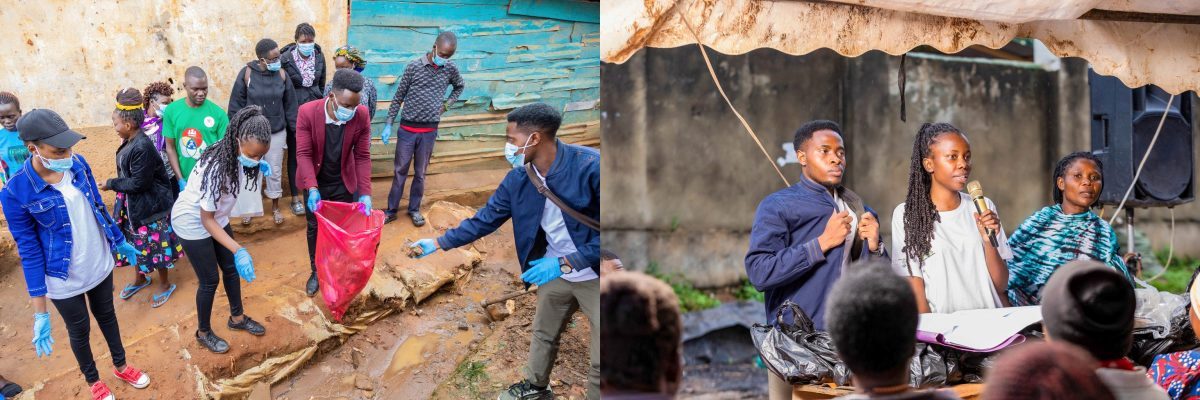
Kisaakye’s work in antimicrobial resistance extends beyond the lab. Having earned her degree in medical laboratory science from Mbarara University of Science and Technology, she founded Impala Tech Research in 2024 to drive impact and save lives. She has led grassroots AMR campaigns that integrate antimicrobial stewardship with water, sanitation, and hygiene (WASH) education in underserved urban communities, including the informal settlements in Kampala. She also has since designed peer-led initiatives that empower university students as AMR Champions, building a network of informed youth advocates. Kisaakye believes the health communication course will sharpen her ability to design and deliver impactful, community-centred interventions in response to the growing threat of drug resistance.
“The department collaborates with many partners within and beyond the University, including the School of Public Health, where we are working to develop the subfield of health communication and promotion. Our goal is to train specialists in this area and build a community of practice, something we have each been doing in our own spaces. There’s a lot of work ahead, and COVID-19 showed us just how urgently we need a generation trained to do this kind of work, and to do it very well,” said Dr. Aisha Nakiwala, Head of the Department of Journalism and Communication, during the opening of the short course on June 5.
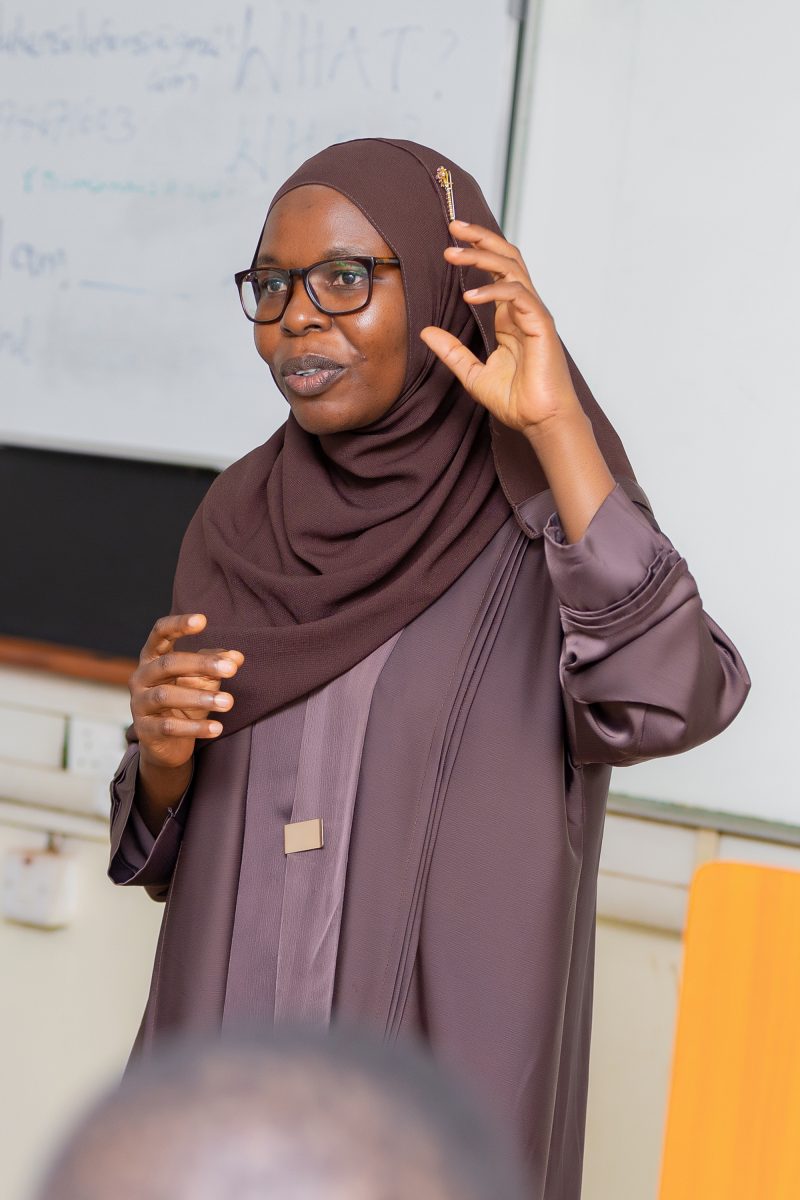
She assured participants they were in good hands and underscored the importance of the partnership between the Department of Journalism and Communication and the School of Public Health, describing it as a vital collaboration that brings together strategic communication and public health expertise. This dynamic, multidisciplinary approach, she noted, is essential to developing practical solutions that empower communities, strengthen health systems, and ultimately improve livelihoods.
The course offers a hands-on, multidisciplinary learning experience, with participants intended to explore key modules including Health Communication and Promotion, Risk Communication, Smart Advocacy, Community Mapping, Community Mobilisation and Empowerment, and Strategies for Community Engagement. The course combines theory with real-world application, and its assessment includes a field-based project and a final exam.
“You are our first cohort. We are seeing the fruits of our efforts in bringing this short course to life. It was born out of a joint initiative to develop a Master’s programme in Health Promotion and Communication,” said Dr. Christine Nalwadda, Head of the Department of Community Health and Behavioural Sciences. “We carried out extensive consultations with our different key stakeholders during the process and discovered a real need for such a course. It was the stakeholders who even named it; this course name didn’t come from us.”
For Kisaakye, by the end of the course in July, she hopes to have sharpened her skills in health promotion and strategic communication, particularly in crafting targeted messages that help individuals and communities effectively respond to threats such as antimicrobial resistance. She also aims to gain practical experience in designing, implementing, and evaluating community health initiatives that can strengthen her advocacy and drive lasting impact.
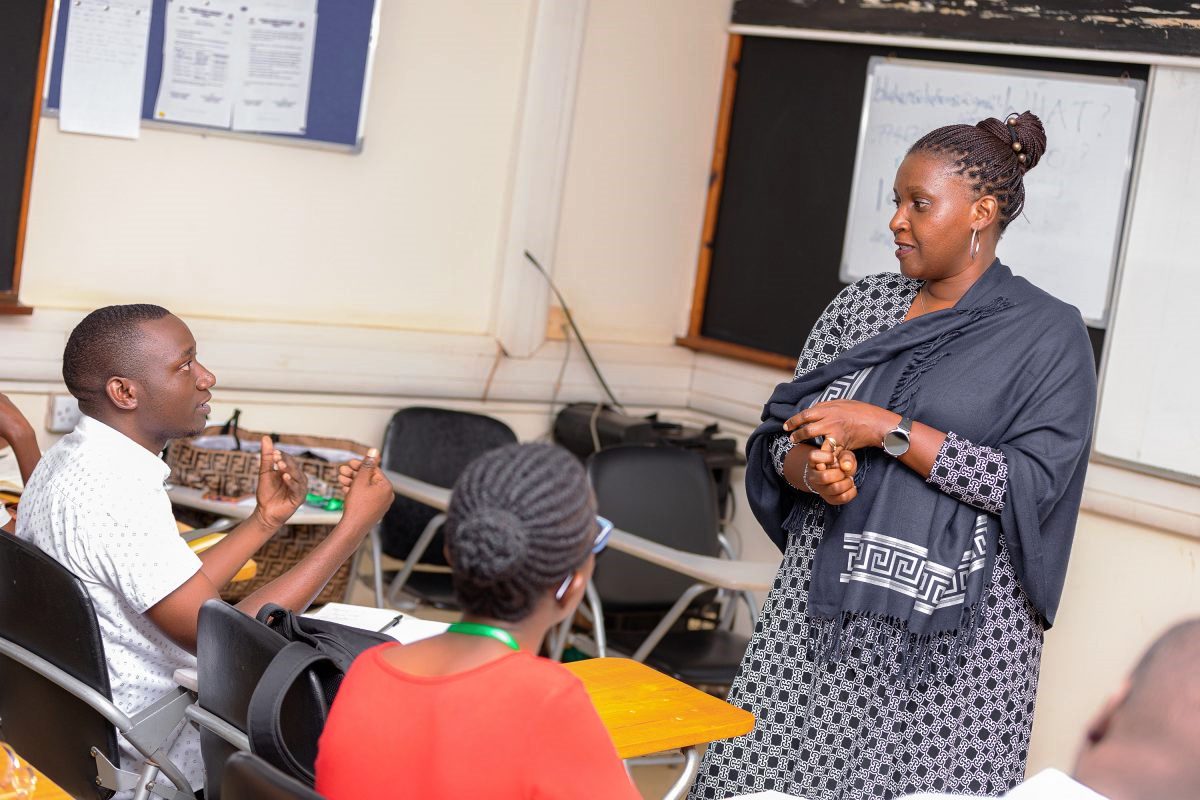
Humanities & Social Sciences
Makerere Marks 40 Years of Cultural and Academic Cooperation with the Italian Ethnographic Mission
Published
1 month agoon
May 19, 2025By
Jane Anyango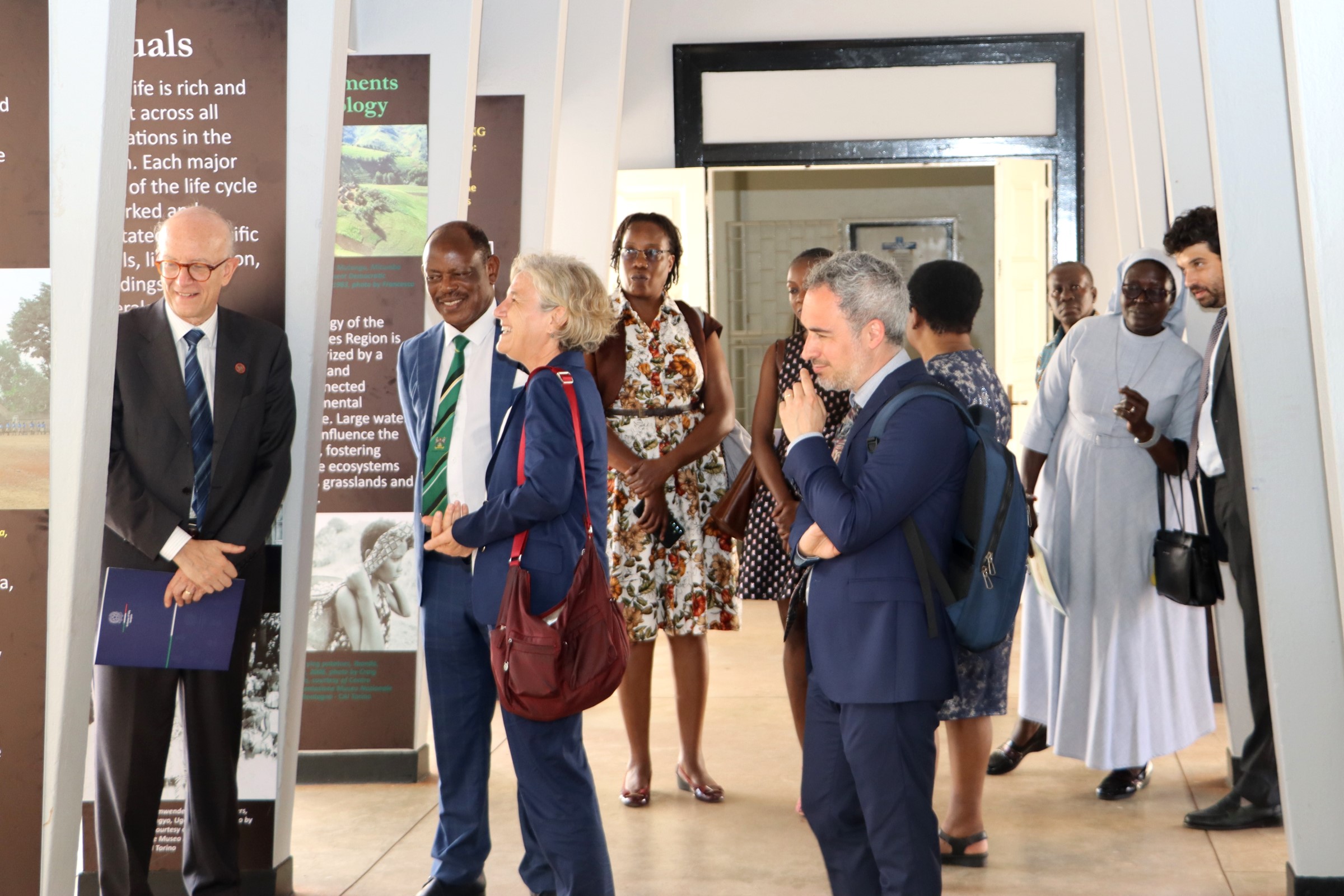
Minister calls on universities to Mainstream Cultural Studies
Kampala, Uganda | May 16, 2025 — Makerere University, in collaboration with the University of Turin and the Italian Embassy in Kampala, marked four decades of academic and cultural partnership with a landmark photographic exhibition titled “Connecting Cultures: The Italian Ethnological Mission in the Great Lakes Region.”
The exhibition, hosted at the College of Humanities and Social Sciences (CHUSS), visually chronicles over 40 years of Italian ethnographic research in Equatorial Africa. Since its establishment in 1979, the Italian Ethnological Mission—anchored at the University of Turin—has documented and studied the social and cultural fabric of the Great Lakes Region, including Uganda, the Democratic Republic of Congo, Rwanda, Burundi, and Tanzania.
Funded by the Italian Ministry of Foreign Affairs and International Cooperation and supported by the Erasmus+ programme, the mission focuses on topics including refugee integration, traditional knowledge, oral history, and cultural continuity.
The exhibition aims to share the Mission’s ethnographic insights, celebrate academic cooperation between Uganda and Italy, and highlight the deep interwoven cultural legacies of the region’s communities.
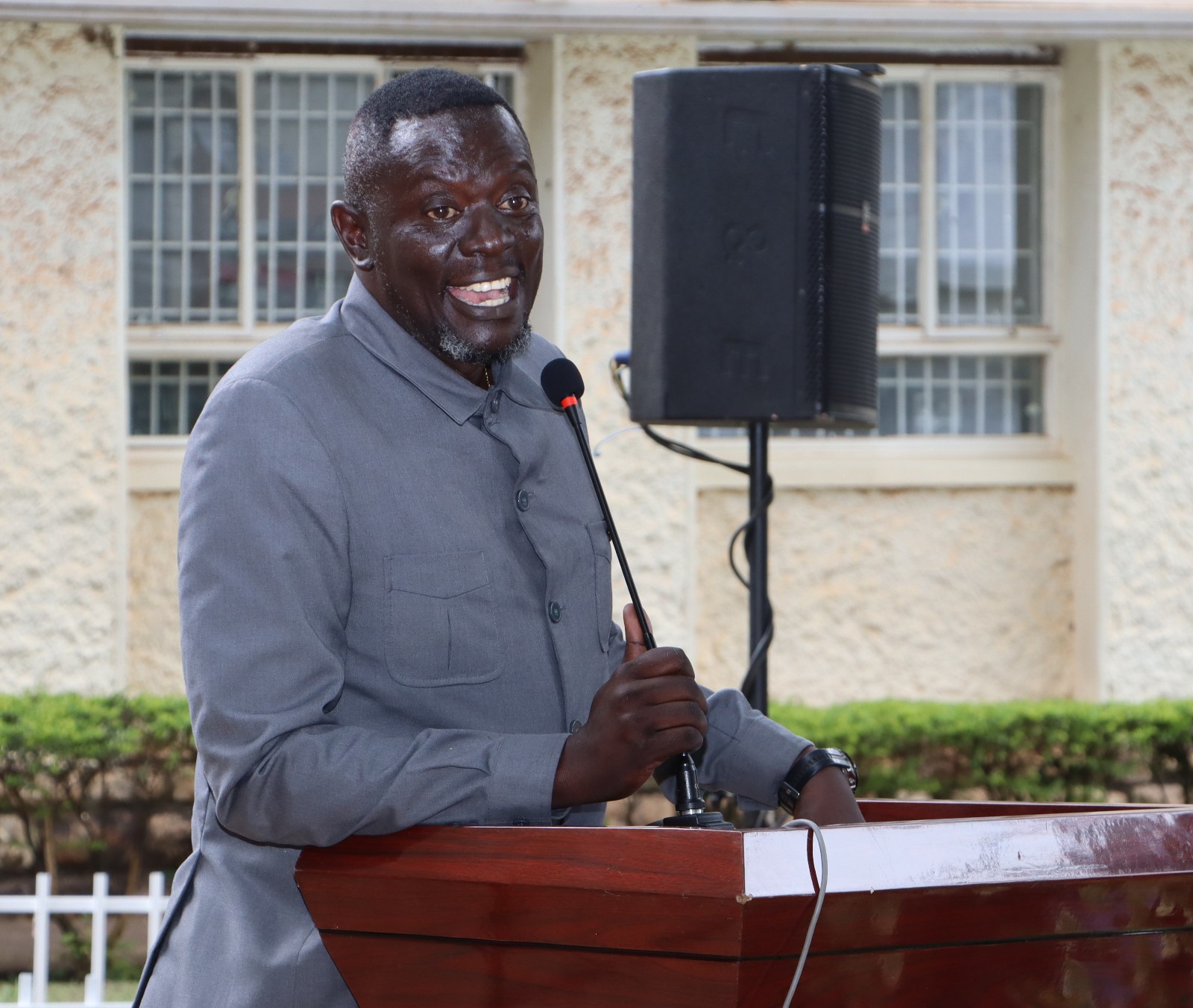
Presiding over the official opening on behalf of the Honorable Minister of State for Higher Education, Dr. John Chrysestom Muyingo, Commissioner Timothy Ssejjoba delivered a message emphasizing the educational significance of the initiative.
“This is not merely an exhibition of images,” he said. “It is a profound representation of intellectual partnership, cultural dialogue, and the enduring power of research and education to shape societies.”
Drawing inspiration from an African proverb—”When a child washes their hands, they dine with kings”—he acknowledged the honor of representing the Minister at such a distinguished gathering and used the opportunity to reaffirm government support for cultural preservation and academic innovation.
Commissioner Ssejjoba noted that Uganda’s aspirations, as articulated in the Vision 2040 and successive National Development Plans (NDP III and IV), align strongly with the goals of ethnographic research. He highlighted that investing in cultural heritage is not merely nostalgic but strategic for human capital development, social cohesion, and regional integration.

“In today’s world of globalization and displacement, ethnographic work becomes indispensable. It helps us preserve intangible heritage and build resilient, inclusive communities,” he said.
The commissioner commended the Italian Ethnological Mission, founded by Prof. Francesco Remotti and carried forward by Prof. Cecilia Pennacini and current Director Prof. Alessandro Gusman, for their long-standing engagement with Uganda and the wider Great Lakes Region.
Ministerial Appeal: Cultural Studies Are a Necessity, Not a Luxury
A key message in his remarks was a direct call to Uganda’s higher education institutions:
“I therefore call upon our universities to continue integrating cultural studies into mainstream curricula—not as a luxury, but as a necessity in building well-rounded, empathetic, and informed citizens.”
This appeal was underpinned by the government’s commitment to transformative education, as outlined in the Social Education Sector Strategic Plan, which seeks to produce globally minded graduates capable of addressing complex societal issues.
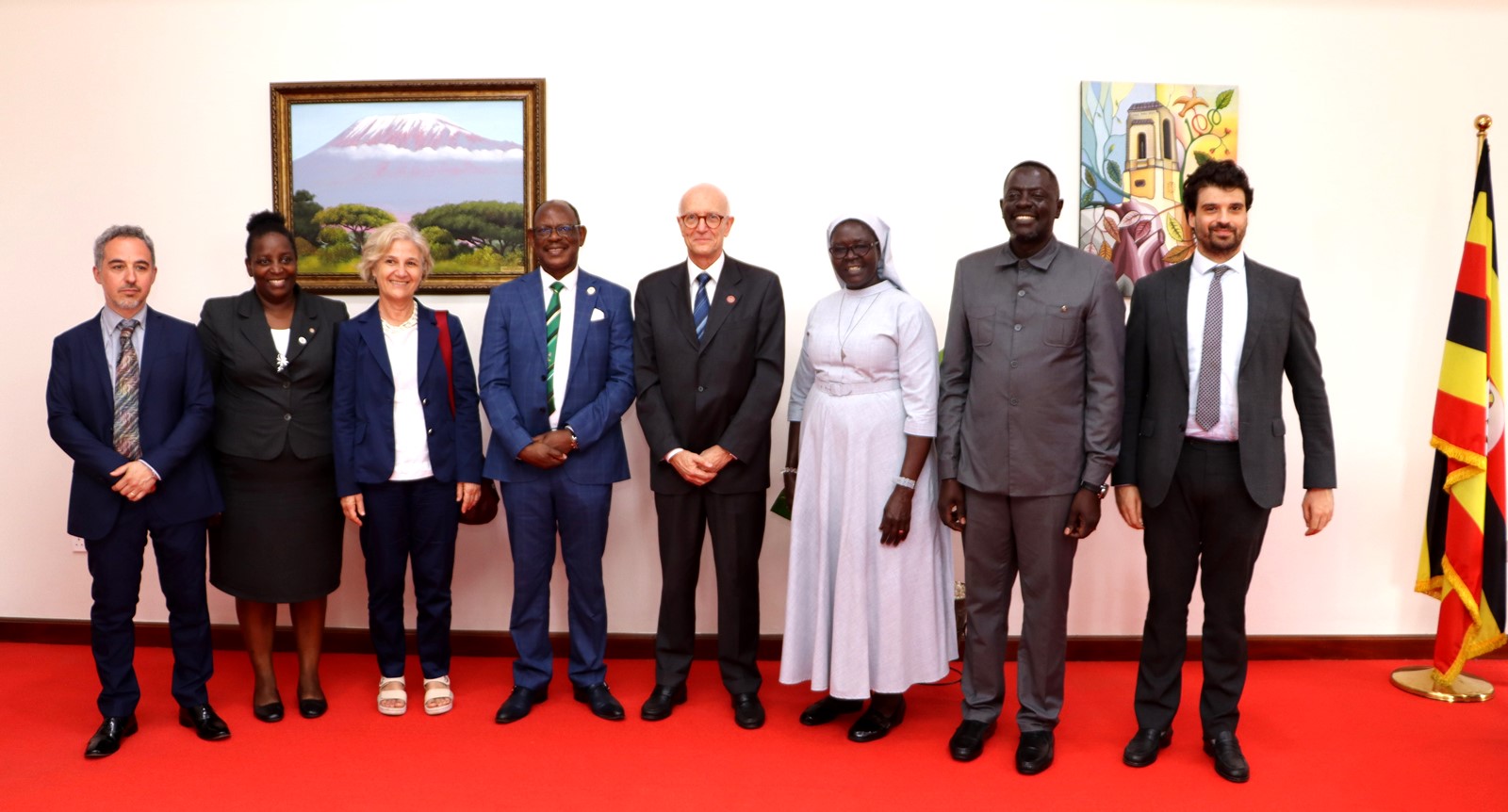
The commissioner also lauded the Erasmus+ Programme for facilitating student and staff mobility between Makerere and the University of Turin, significantly improving PhD completion rates and strengthening international research ties.
The Connecting Cultures exhibition offers a visual journey through four decades of ethnographic work, touching on themes such as identity, migration, oral traditions, music, and the social lives of communities across the region. It serves not only as a scholarly archive but also as a bridge between past and future generations.
“These photographs are living stories,” Ssejjoba emphasized. “They reflect identity, tradition, and the power of memory in shaping who we are—and who we aspire to become.”
In echoing the day’s theme, Commissioner Ssejjoba described the exhibition as “a testament to the transformative power of education, culture, and international solidarity.” He called upon development partners to support similar initiatives that use culture as a tool for peacebuilding, intercultural dialogue, and inclusive development.
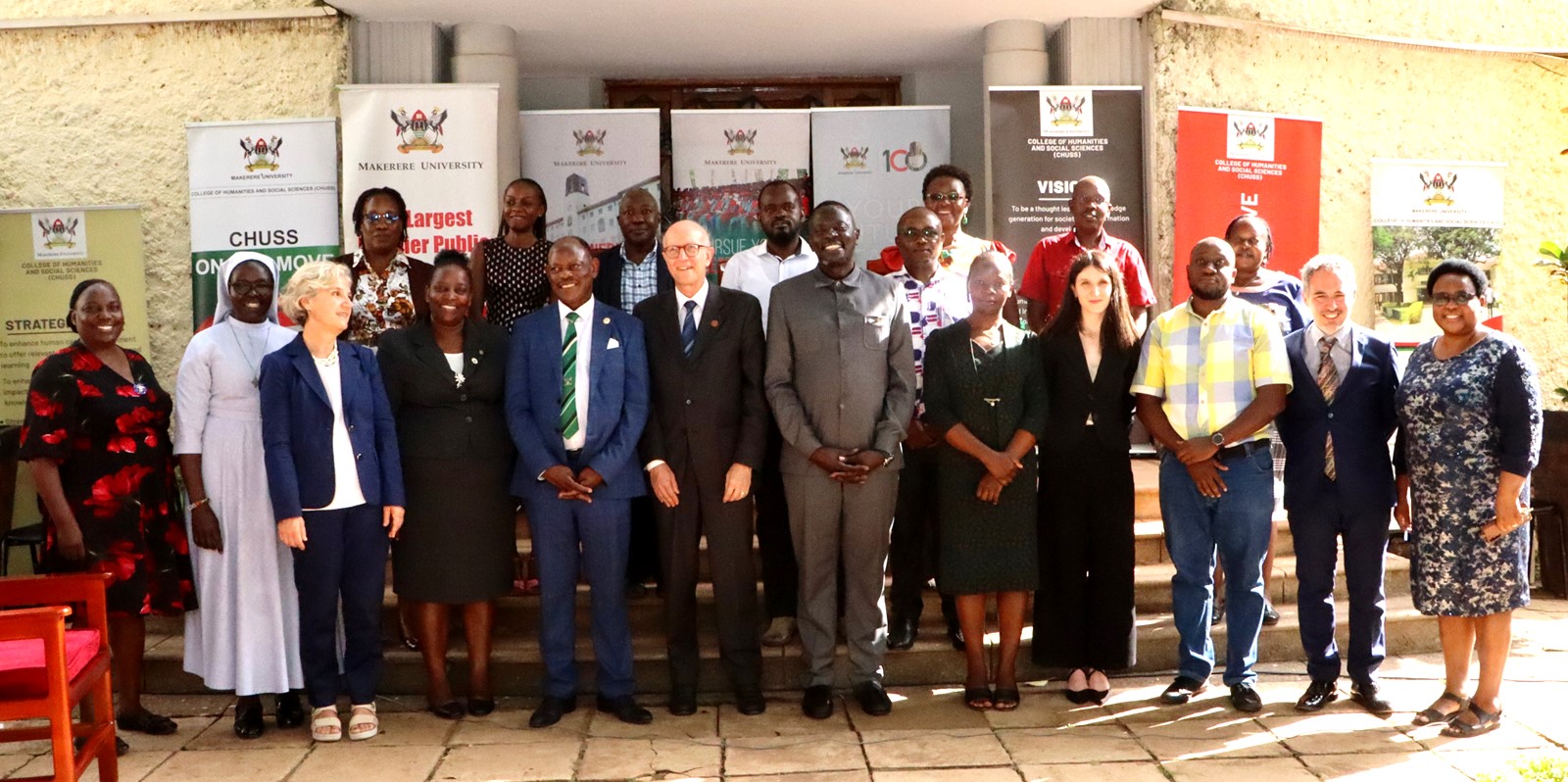
“To the students, researchers, and the broader public,” he concluded, “may you draw inspiration from this work. Let us preserve our cultural heritage, connect across borders, and use education as a force for progress.”
Italy Backs Cross-Cultural Research as Key to Social Transformation – Ambassador Massoni
Italy’s Ambassador to Uganda, H.E. Mauro Massoni, hailed cross-cultural academic collaboration as a powerful vehicle for social change, policy innovation, and mutual understanding, calling the partnership between Makerere University and the University of Turin a model for international cooperation.
Ambassador Massoni praised the longstanding collaboration between Italian and Ugandan scholars, particularly through the Italian Ethnological Mission in the Great Lakes Region. He noted that the mission, established over four decades ago, continues to foster intercultural dialogue and tackle shared global challenges through ethnographic research.
“This exhibition offers more than images. It tells the story of enduring cooperation—academic, cultural, and human—between our two countries,” he said. “It’s a testament to what we can achieve when we work together across disciplines, borders, and continents.”
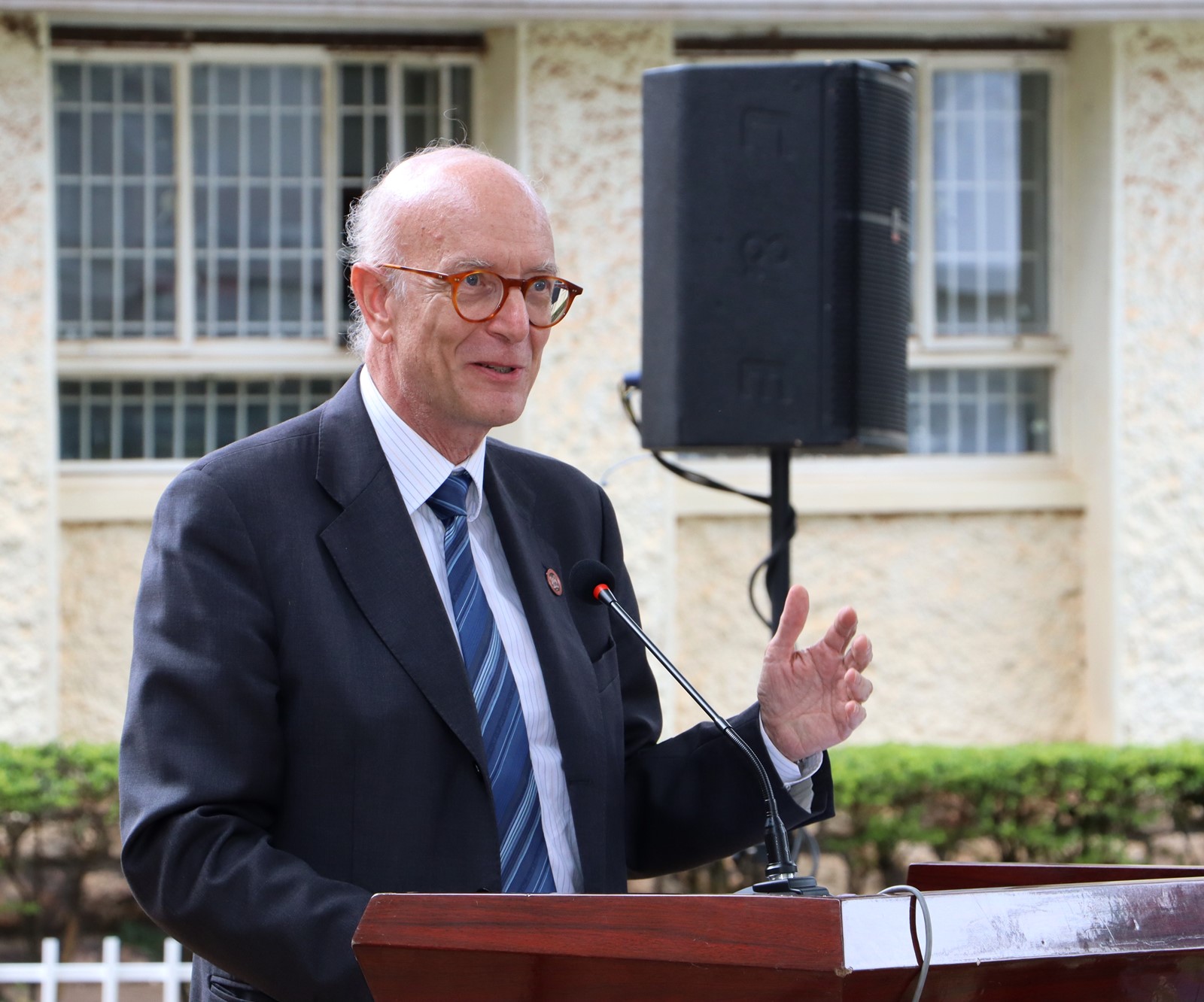
The Ambassador commended the University of Turin, particularly Professors Alessandro Gusman and Cecilia Pennacini, for their leadership in driving fieldwork-based research that links academia with community needs. He emphasized that the mission has not only enriched scholarly understanding but also played a role in social dialogue, community engagement, and humanitarian advocacy.
“This partnership transcends academic borders. It contributes to policy development and community cohesion. It shows how research—when rooted in empathy and equity—can improve lives,” he said.
Ambassador Massoni also spotlighted collaborative projects such as those examining migration, refugee experiences, and mobility in East Africa, many of which are supported by the Erasmus+ programme. These joint initiatives, he said, help address pressing social issues through shared academic pathways.
“Such work strengthens mutual comprehension and confronts the complex realities shaping our societies today,” he noted.
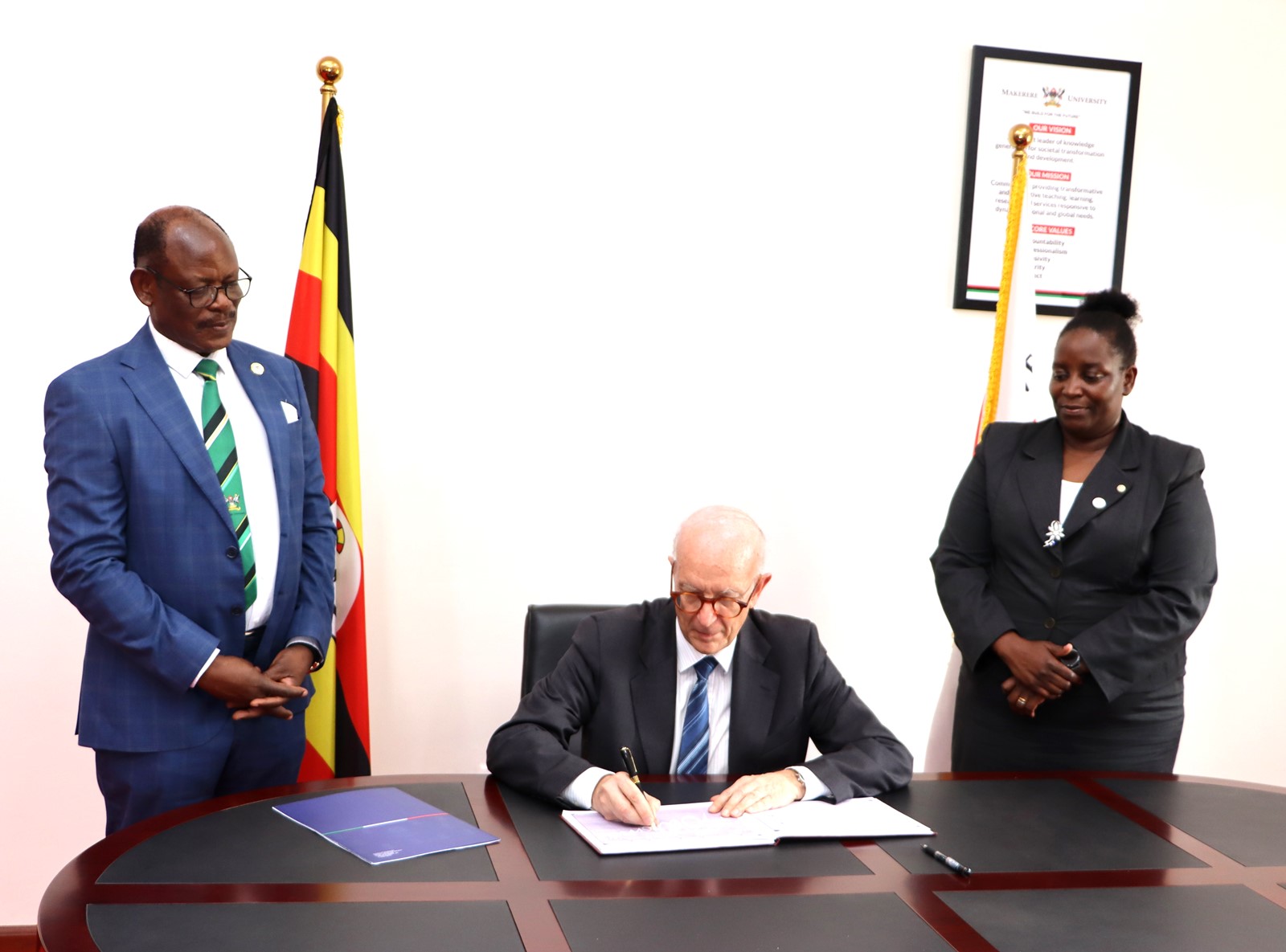
Additionally, he highlighted the recent launch of the Strengthening African-Italian Museum Partnerships project, supported by the Italian Agency for Development Cooperation. The initiative aims to digitize and preserve African cultural heritage in collaboration with major Italian and African museums, including the Uganda Museum.
“Italy is proud to support this effort. We see scientific diplomacy and cultural heritage as powerful tools for trust, understanding, and long-term collaboration,” he said.
In closing, Ambassador Massoni expressed gratitude to Makerere University and the wider academic and curatorial teams behind the exhibition. He encouraged guests to view the display not only as a celebration of past work but also as a call to future action.
“Let us continue building together—not only academic bridges—but human ones,” he concluded.
We must train more Archeologists and Anthropologists- Vice Chancellor Prof. Nawangwe
Makerere University Vice Chancellor, Prof. Barnabas Nawangwe hailed universities as key agents of peacebuilding and intercultural dialogue, emphasizing their critical role in advancing global understanding amid rising geopolitical tensions.
Prof. Nawangwe praised the longstanding collaboration between Makerere University and Italian institutions, calling it a shining example of how academic partnerships can foster peace and mutual respect.

“Universities are the best engines for promoting peace in the world. There is no better institution than a university to bring people and cultures together,” Prof. Nawangwe asserted.
Reflecting on historical ties, Nawangwe recalled the substantial support Makerere received from the Italian government during the 1987 donor conference, particularly in reviving the Faculty of Technology. He noted that the impact of such partnerships goes beyond infrastructure and education, contributing to nation-building and lasting international friendships.
“I personally benefited from those exchanges. I lived in Italy for a month, studied the language, and engaged with Italian culture. These interactions create lifelong connections,” he said.
He pointed to Makerere‘s global footprint as a leading research institution, recently ranked by Times Higher Education as the most collaborative university in the world, based on international research partnerships.
“At Makerere, we have more researchers publishing with colleagues from other universities than anywhere else. This collaborative spirit reflects our belief in academic diplomacy as a force for development,” he explained.
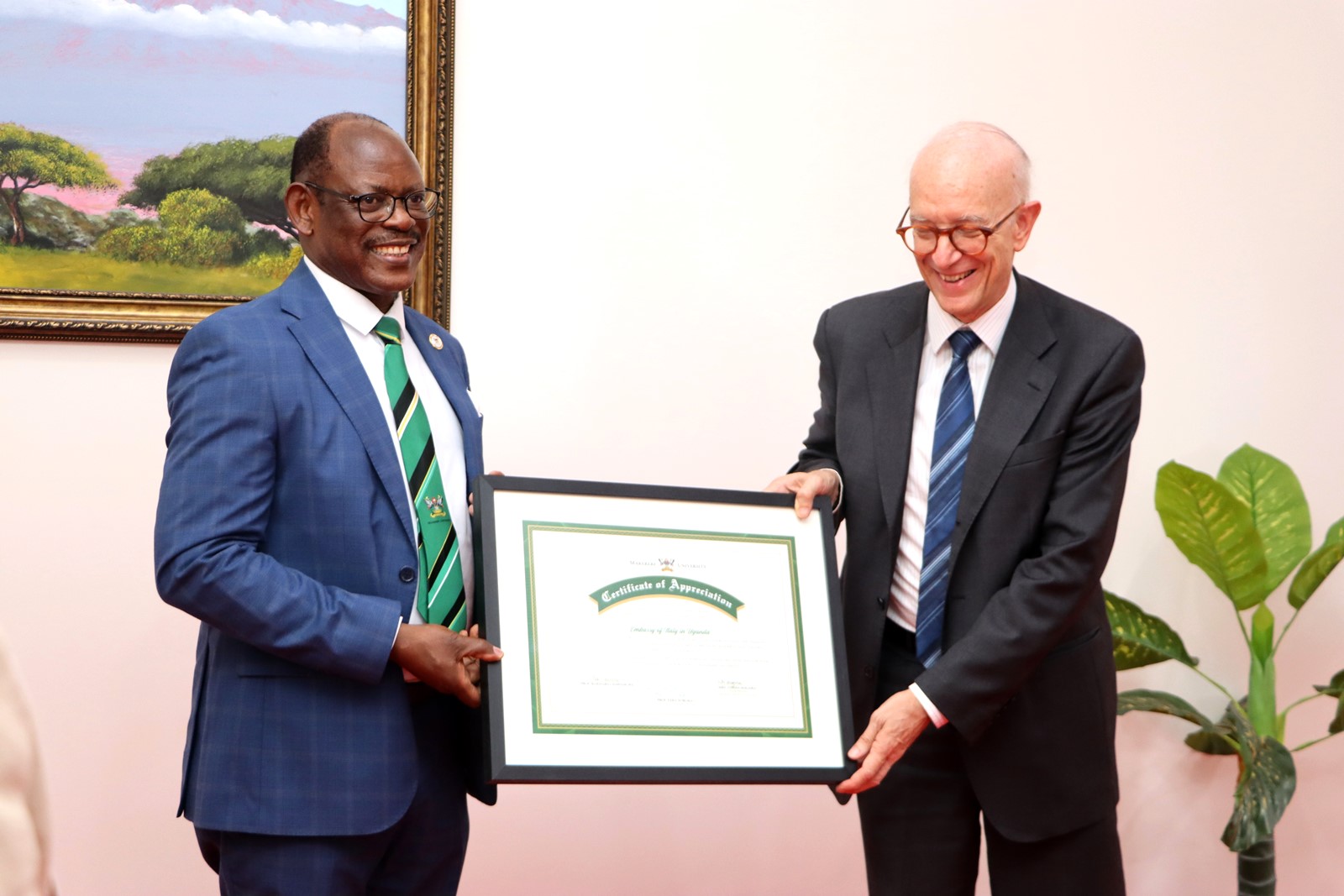
Prof. Nawangwe highlighted the university’s particularly strong ties with Italy, noting that most of its Erasmus+ academic exchange agreements are with Italian institutions. He attributed this to the deep-rooted friendship between Uganda and Italy, with Makerere acting as “Uganda compressed in one place.”
Praising the exhibition’s vivid portrayal of East and Central African cultural heritage through photography, Nawangwe called visual documentation one of the most powerful tools for preserving and communicating knowledge.
“A photographic illustration is the strongest kind of evidence. It stays with you. What I saw today helped bring to life things I’ve only read or heard about,” he said.
The Vice Chancellor also expressed concern over the limited development of disciplines like archaeology in Uganda, describing it as “a shame” that the country only recently graduated its first archaeologist.
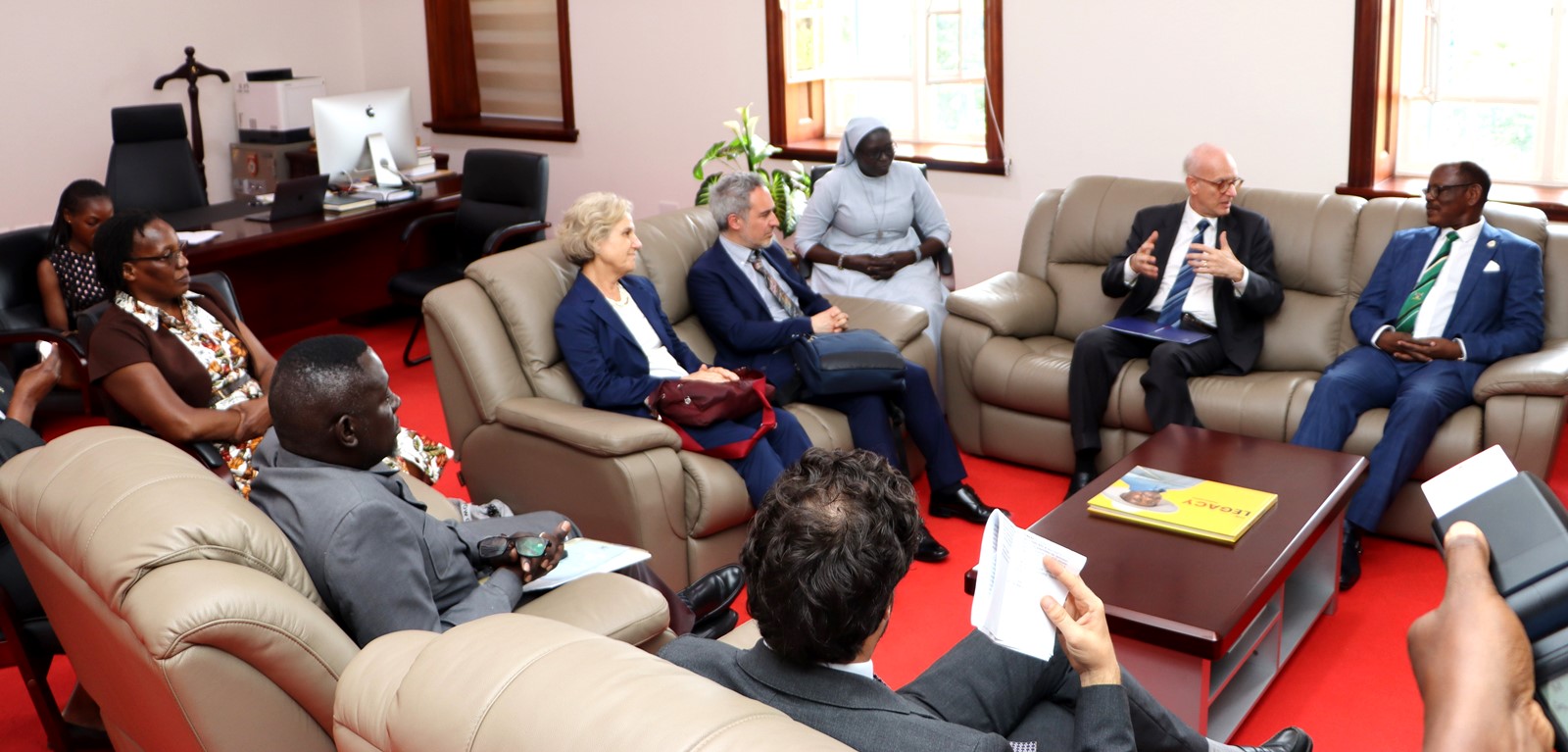
“With all our cultural diversity and historical wealth, how can archaeology be new in Uganda? We must train more archaeologists and anthropologists to study our own heritage,” he urged.
He concluded by encouraging scholars to remain committed to cultural research and international collaboration, thanking the Italian Embassy for its continued support in fostering ties between Uganda and Italy.
“We must keep walking in our pursuit of knowledge, peace, and progress for Uganda and the world,” Nawangwe said, in his characteristic blend of seriousness and humor.
Nkabala Calls for Introduction of Italian Language at Makerere to Deepen Cultural Connections
Associate Professor Helen Nambalirwa Nkabala, Principal of the College of Humanities and Social Sciences (CHUSS), called for the introduction of Italian language instruction at the university as a strategic step in strengthening cultural and academic ties between Uganda and Italy.
Prof. Nkabala emphasized the importance of language in fostering deeper intercultural understanding and advancing the university’s global engagement agenda.
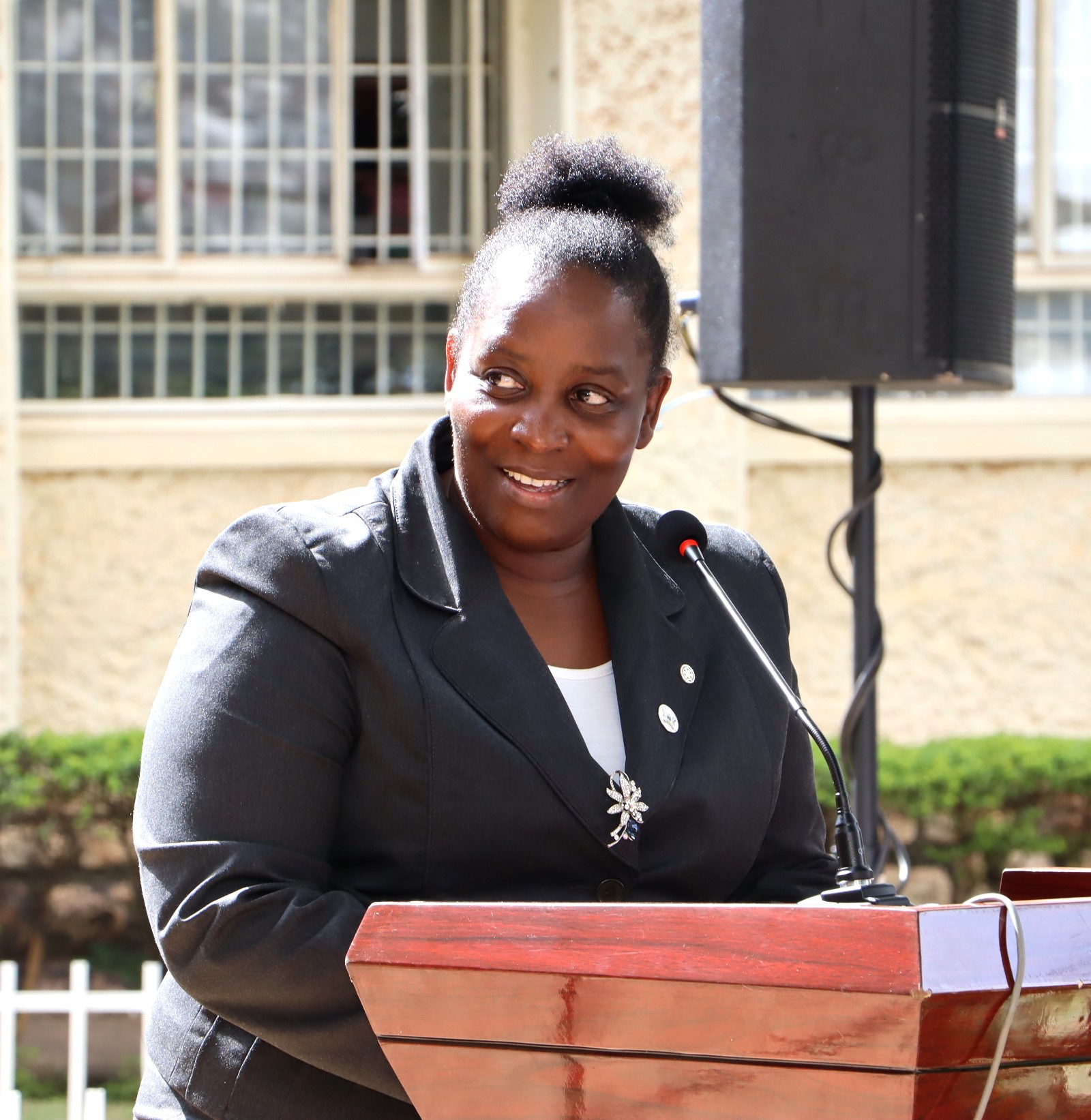
“In addition to what is already happening, we’d like to invite you to the School of Languages, Literature, and Communication so that we can start teaching Italian at Makerere University. When we talk about connecting cultures, issues of poetry come in,” Nkabala said.
The principal highlighted the longstanding relationship between Makerere University and Italian academic institutions, referencing ongoing collaborations with the University of Turin, the European Academy of Religion, and new engagements with Sapienza University of Rome. She also acknowledged support from Italian scholars such as Prof. Alessandro Gusman and Prof. Cecilia Pennacini.
“Friends, today is testimony that the College of Humanities and Social Sciences will use all that is within its means to change the narrative,” she said, referring to the exhibition as a powerful demonstration of the college’s research impact and cultural outreach.
Prof. Nkabala praised Makerere’s deans, heads of departments, and academic staff for their collective efforts in organizing the exhibition, and extended special appreciation to the Italian Embassy in Kampala for its continued logistical and visa support, which has enabled seamless academic exchange.
“Our academics never get problems because you have a very dynamic team. We thank you very much for allowing them the opportunity to support us when we need it,” she noted, addressing Italian Ambassador Mauro Massoni directly.
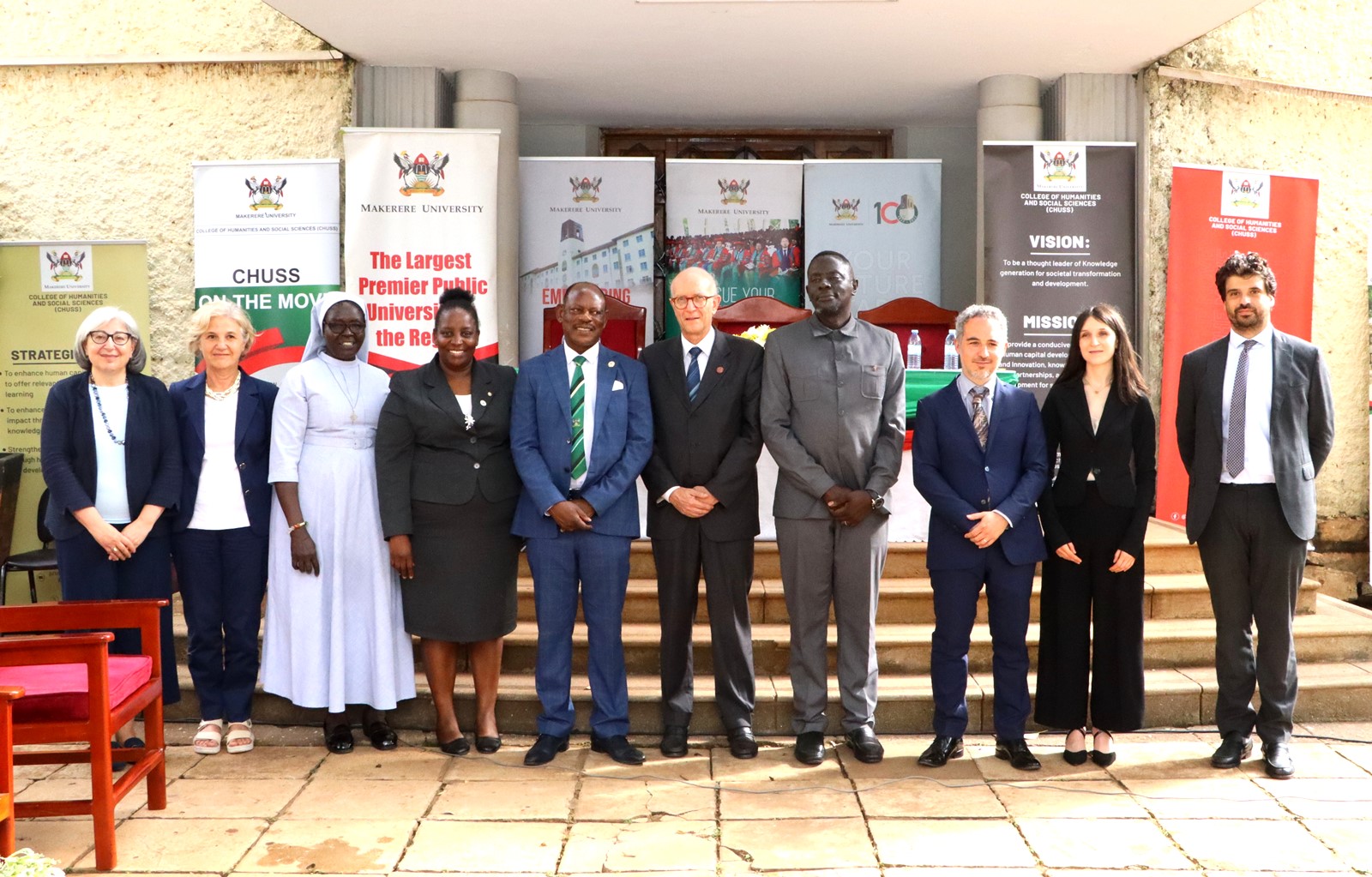
She also paid tribute to predecessors, including Prof. Josephine Ahikire and the former Principal Prof. Edward Kirumira, for their role in laying the foundation for enduring academic partnerships between Uganda and Italy.
As the College of Humanities and Social Sciences continues to expand its international footprint, Nkabala urged faculty and students to remain committed to collaboration and participation in future joint initiatives.
“Colleagues, I call upon you to be present when called upon,” she said, reaffirming CHUSS’ dedication to cultural diplomacy through research, language, and the arts.
Africa Offers the World Wisdom and Science—Prof. Pennacini Urges New Era of Equal Academic Partnerships
Professor Cecilia Pennacini, former Director of the Italian Ethnographic Mission in the Great Lakes Region called for a paradigm shift in Africanist research and cultural cooperation, asserting that Africa offers the world invaluable wisdom, philosophy, and science.
Prof. Pennacini emphasized that Italian scholars came to Africa “not to teach, but to learn.”
“The ancient civilizations of Africa have so much to teach the Western world—in terms of knowledge, wisdom, philosophy, politics, even science and art,” she said. “This is why our mission has always been grounded in humility and mutual respect.”
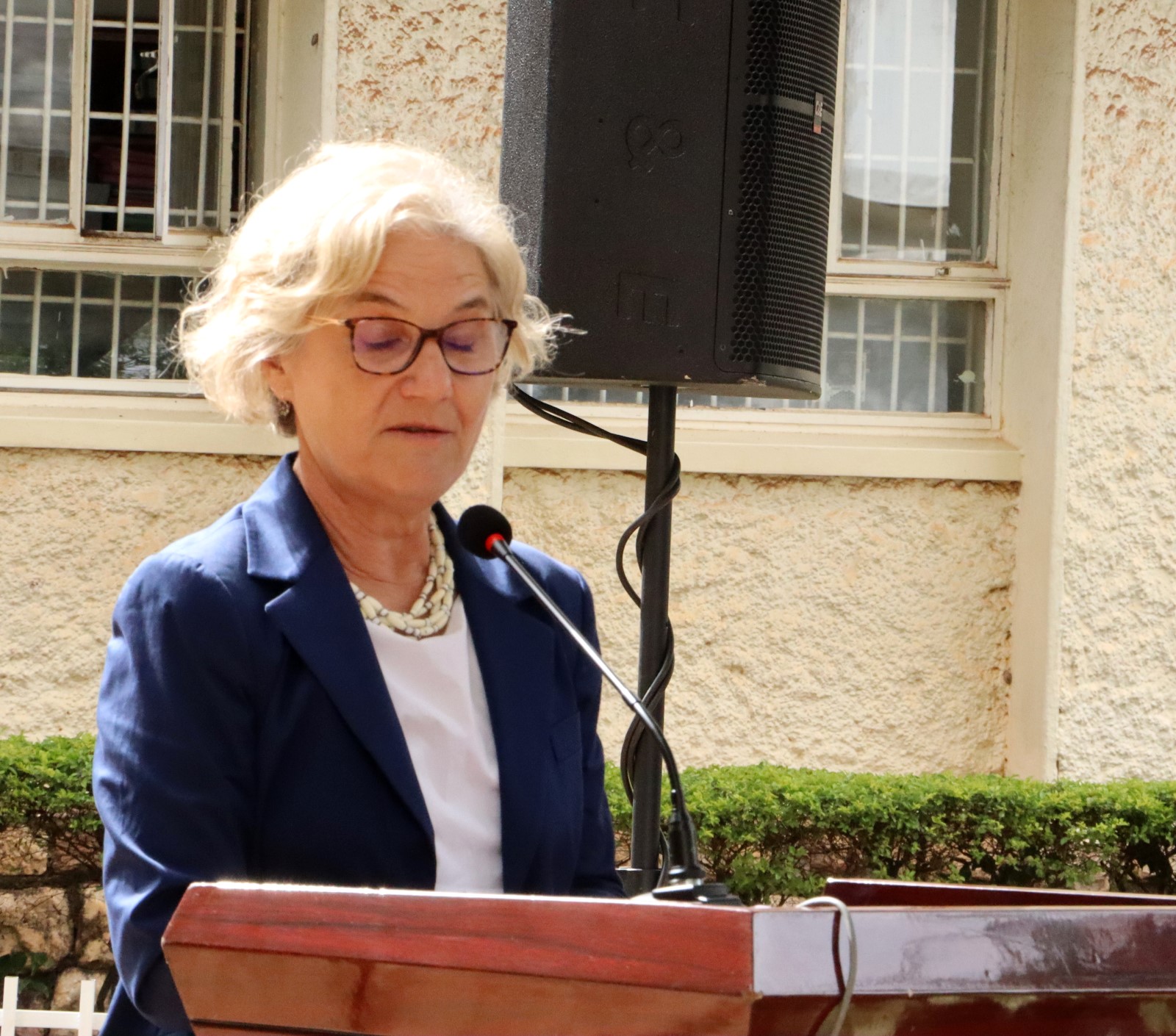
Prof. Pennacini reflected on the foundational vision of the Italian Ethnographic Mission, established by her mentor, Prof. Francesco Remotti, who advocated for fieldwork rooted in cultural dialogue rather than colonial paradigms of knowledge extraction.
Upon assuming leadership of the Mission in 2005, Pennacini prioritized creating equal academic partnerships. She credited this approach with the establishment of a formal collaboration with Makerere University, which has since flourished through joint research, teaching exchanges, and mobility programs funded by the European Union’s Erasmus+ initiative.
“We have grown together—building common knowledge and hopefully laying foundations for future generations,” she noted.
Prof. Pennacini also announced a major new initiative aimed at transforming museum practice and cultural preservation across Africa and Europe. The project, Strengthening African-Italian Museum Partnerships, is supported by the Italian Agency for International Development Cooperation (AICS) and will connect eight museums—four in Africa and four in Italy.
Participating institutions include the Uganda Museum, the National Museum of Ethiopia, the National Museum of Lubumbashi in the DRC, and the Ethnographic Museum at Addis Ababa University. These will collaborate with the Museum of Civilizations in Rome, the Royal Museums of Turin, the Savoy Residences in Piedmont, and the Anthropology and Ethnography Museum at the University of Turin.
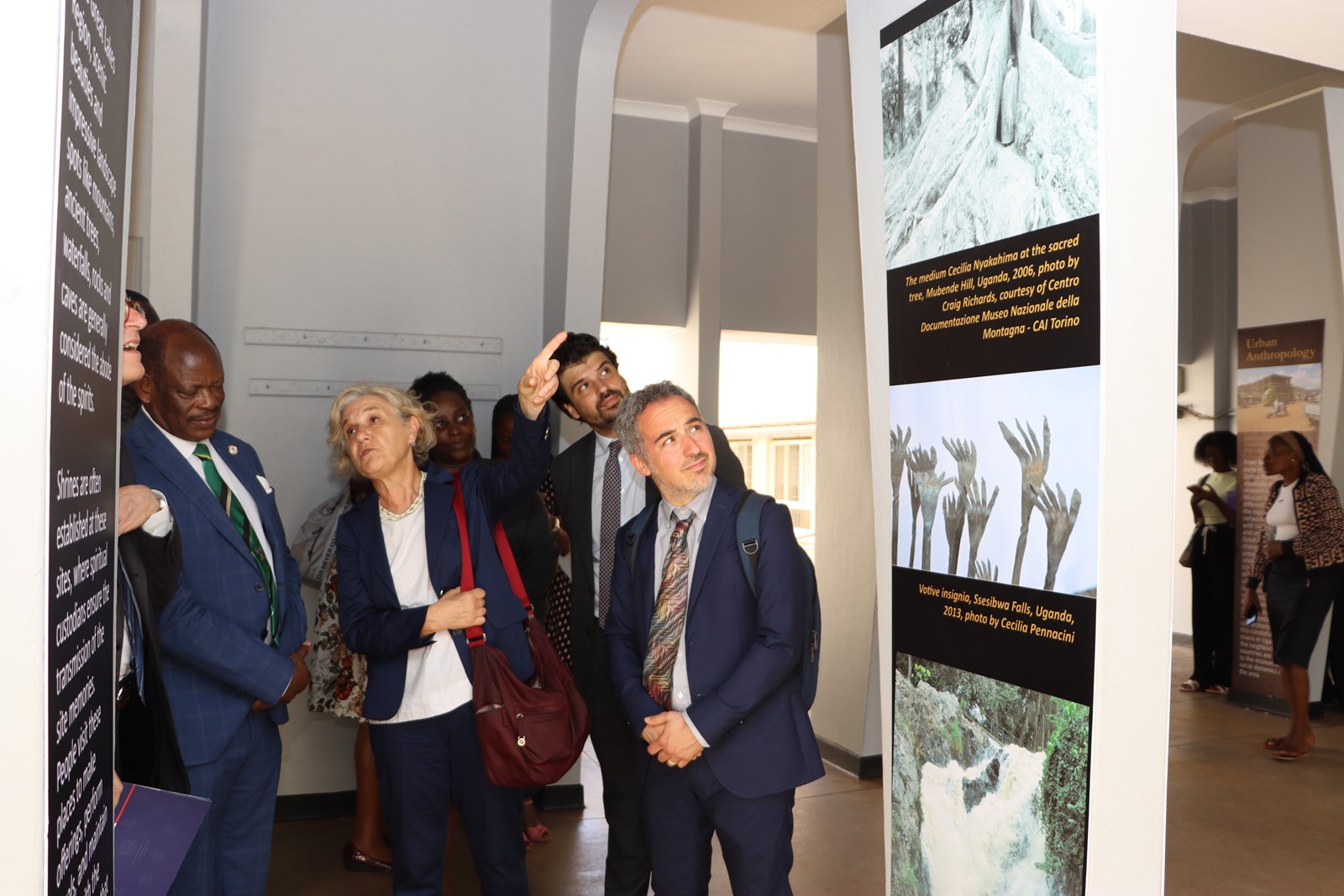
“This project seeks to digitize, catalogue, and valorize ethnological and artistic collections through a participatory approach,” she said. “It will involve local communities, diaspora groups, and civil society as co-creators of museum life.”
Prof. Pennacini stressed the need for museums to be transparent about the provenance of their collections and to embrace inclusive narratives that reflect source communities’ voices. She tied this initiative to Italy’s broader commitment to a redefined model of cooperation inspired by the Mattei Plan for Africa, which promotes non-exploitative, mutually beneficial partnerships.
“Culture must be seen as a fundamental pillar of human development—socially, economically, and intellectually,” she concluded.
Italian Ethnological Mission Celebrates 46 Years of Cultural Research and Partnership in the Great Lakes Region — Prof. Gusman
Professor Alessandro Gusman, Director of the Italian Ethnological Mission in the Great Lakes Region, reaffirmed the mission’s enduring commitment to linking people, cultures, and institutions across national borders through academic and cultural research.
Prof. Gusman described the event as both a celebration and a reflection on 46 years of Italian ethnological research in East Africa, particularly the Great Lakes Region.
“This exhibition retraces the history of our work and celebrates our long-standing collaboration with Makerere University, one of the most esteemed academic institutions in East Africa,” he said.
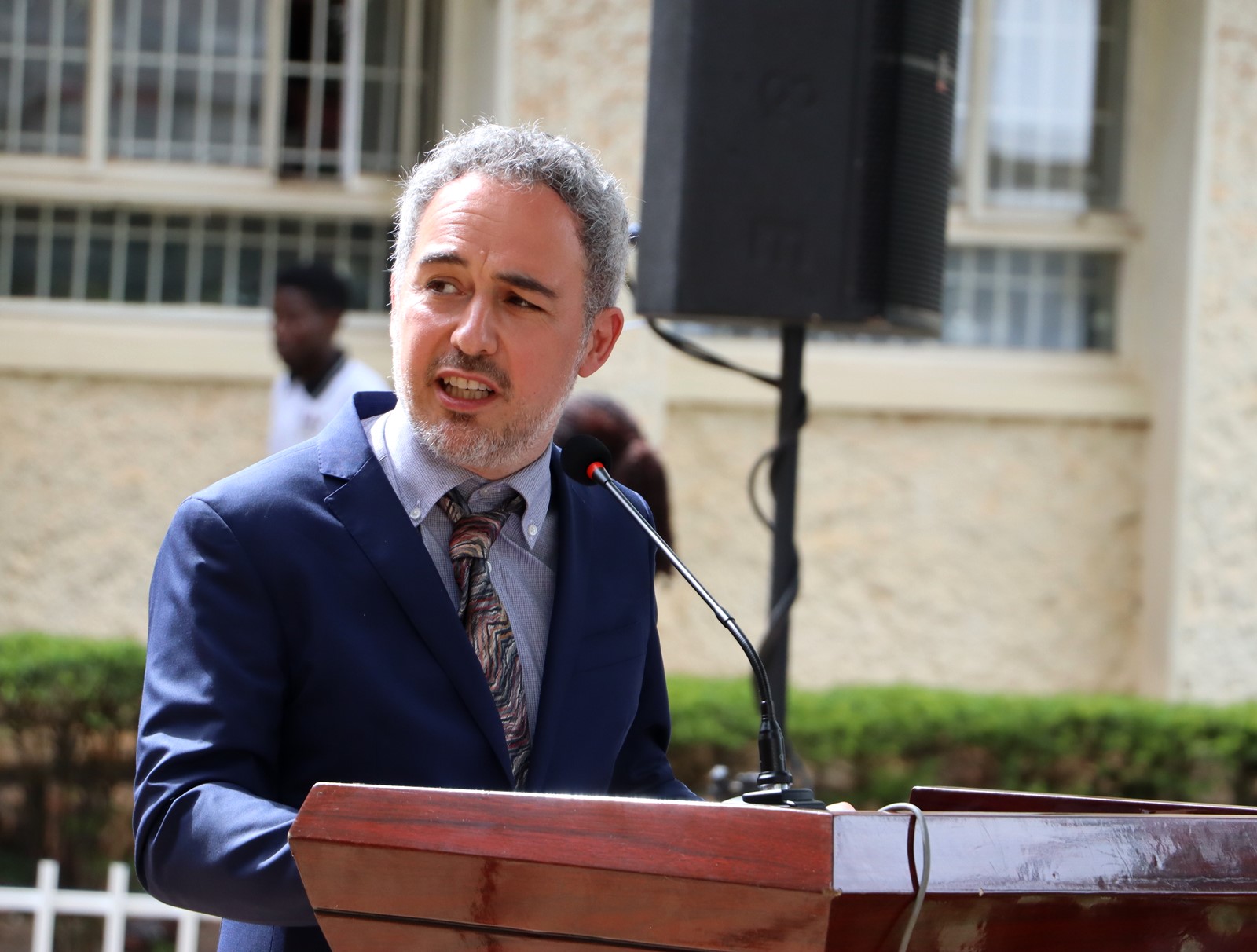
The Italian Ethnological Mission, founded in 1979 by Prof. Francesco Remotti in what was then Zaire (now the Democratic Republic of Congo), has progressively expanded its research footprint across the region—later including Burundi, Rwanda, Tanzania, and Uganda. It officially began its partnership with Makerere in 2004, a relationship Prof. Gusman said has significantly shaped the mission’s academic trajectory.
“The title Connecting Cultures reflects the mission’s core goal understanding and linking diverse societies through shared anthropological inquiry,” Prof. Gusman noted.
He expressed gratitude to the Italian Embassy in Kampala for its continued support, and to the College of Humanities and Social Sciences (CHUSS) at Makerere University for hosting and nurturing the partnership over two decades.
Special acknowledgment was extended to Prof. Cecilia Pennacini, who led the Mission from 2004 to 2018, for deepening the collaboration with Makerere and expanding research into Uganda. Prof. Gusman emphasized that the Mission’s work has always prioritized cultural continuity and regional interconnectivity through language, social structures, and institutions.
“The photographs and texts featured in this exhibition are the result of decades of collaborative research and dialogue,” he said. “They are not just artifacts—they are bridges between nations, histories, and academic traditions.”
Looking forward, Prof. Gusman expressed hope that the partnership would continue to flourish, enhancing academic prestige and generating lasting societal impact.
“Our hope for the future is that these collaborations will grow deeper, bringing not only recognition to the institutions involved but also creating meaningful change across communities,” he concluded.
Makerere’s Prof. Dipio: Italian Collaboration Brings Cultures and Institutions Closer
Professor Dominic Dipio, Coordinator of the ERASMUS Mobility Program at Makerere University, praised the ongoing academic and cultural partnership between Uganda and Italy, calling it a powerful force for diplomacy and institutional connection.
Prof. Dipio highlighted how collaborative efforts between the University of Turin, Makerere, and the Italian Ethnological Mission in the Great Lakes Region have served to “bring Italy closer to Uganda.”
“Exhibitions like this are important because many Ugandans, especially those shaped by British colonial heritage, know little about Italy. These events narrow that gap,” she said.
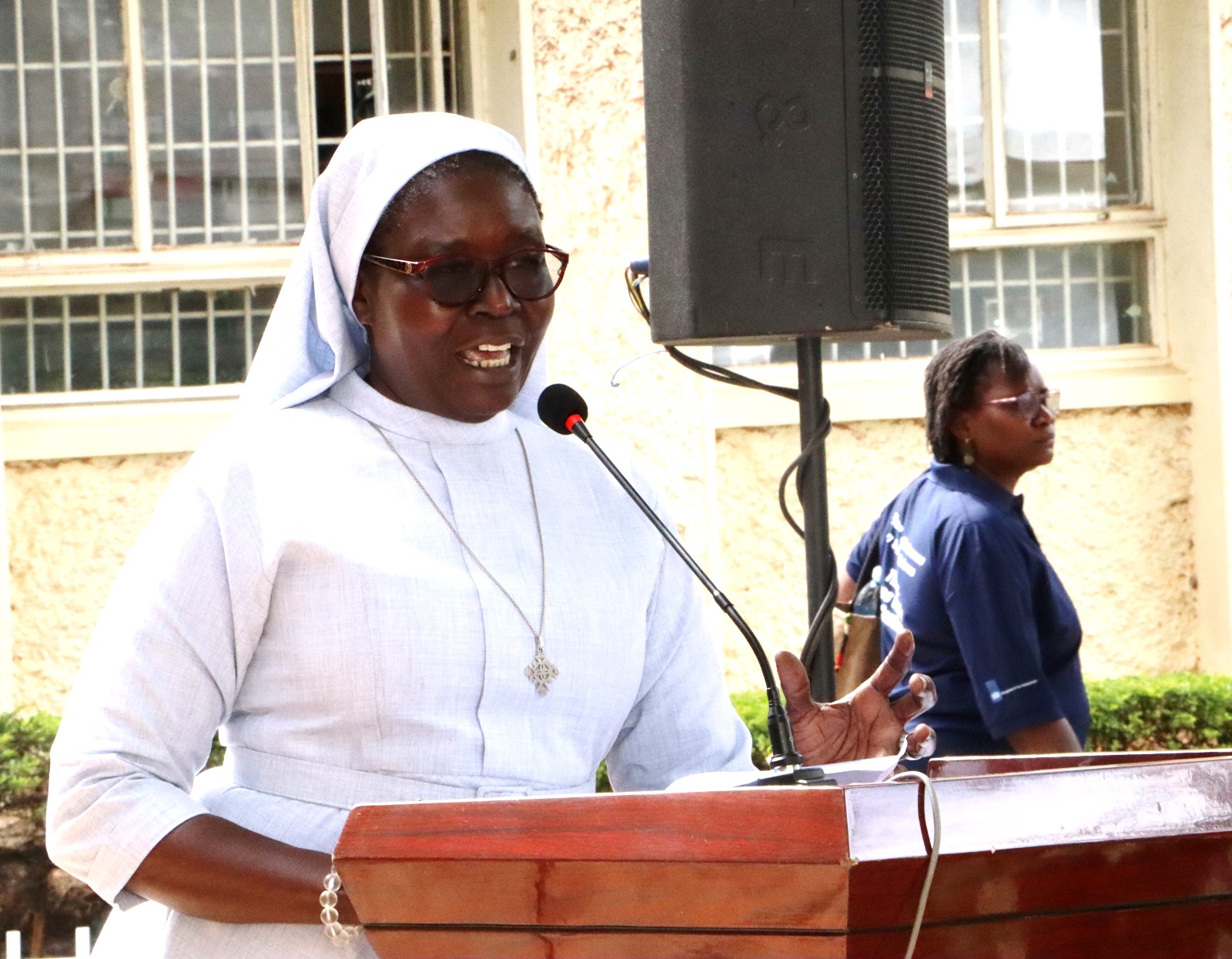
The exhibition, organized in partnership with the Italian Embassy in Kampala, builds on a previous one held in 2022. Prof. Dipio lauded the long-standing academic ties facilitated by the European Union’s Erasmus+ program, which has enabled robust student and staff mobility between the two universities since 2016.
“This triangular relationship between the Government of Italy, Erasmus+, and our universities has allowed Makerere students to spend up to ten months in Italy completing their dissertations — a rare opportunity that boosts our PhD completion rates significantly,” he noted.
Prof. Dipio emphasized the critical role of scholars in diplomacy, stating that research and academic exchange naturally weave connections across cultures and borders.
“The work of scholars often goes beyond classrooms and papers. It becomes a means of international dialogue and peacebuilding,” he said.
She also commended the logistical teams from Makerere, the University of Turin, and the Italian Embassy — particularly the visa section — for enabling seamless academic travel.
“Your commitment, your flexibility, and your belief in this partnership have made it thrive. We are grateful,” Dipio said, addressing embassy representatives present.
The exhibition showcases decades of ethnographic research by the Italian mission and emphasizes themes of cultural continuity, social institutions, and intercultural exchange in the Great Lakes region. Prof. Dipio expressed hope that the exhibition panels remain accessible for more students and faculty to benefit from before the academic break.
“We pray this collaboration continues to flourish. It is not just institutional — it is deeply personal. We now call each other by our first names, a sign of the trust and friendship we’ve built,” she concluded.
The Connecting Cultures exhibition is part of a broader movement at Makerere University to internationalize its academic outlook and deepen ties with institutions around the world, especially in the humanities and social sciences.
Jane Anyango is the Principal Communication Officer CHUSS
Trending
-

 General4 days ago
General4 days agoMature Age Scheme Exam Results for 2025/2026
-

 General1 week ago
General1 week agoFreshers’ Joining Instructions 2025/2026
-

 General1 week ago
General1 week agoMastercard Foundation Board pays its inaugural visit to Makerere University
-

 General1 week ago
General1 week agoUVCF Makes Case for HEAC Programme
-
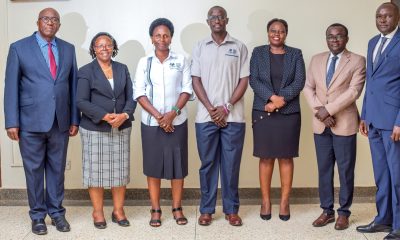
 General2 weeks ago
General2 weeks agoCall For Expression of Interest: MURBS MIS Requirements Gathering
